
















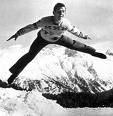


















TLW's Olympics Historyscope |
By T.L. Winslow (TLW), the Historyscoper™ |
© Copyright by T.L. Winslow. All Rights Reserved. |
Original Pub. Date: July 1, 2012. Last Update: Dec. 26, 2019. |








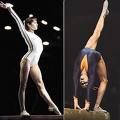


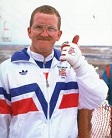


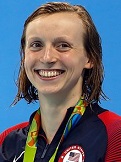
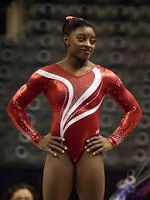
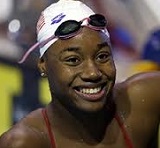


The wild blonde dangly Greeks set up shop in the Me-Scene? About 1900 B.C.E. the city of Mycenae on the plain of Argolis in Greece (in NE Peloponnesus S of the Isthmus of Corinth, 55 mi. SW of Athens) is founded, going on to develop the Mycenaean Civlization (ends -1125), which strongly borrows from the Minoan civilization of nearby Crete by -1600, and by -1400 becomes supreme in the Aegean area, incl. the cities of Tiryns near Mycenae, Orchomenos, and Thebes in Boeotia (birthplace of Hercules), Athens in Attica, home of the Acropolis (Gr. "top of the city"), and Pylos in Messenia in SW Greece; the king is called the wanax, and the army cmdr. is called the lawagetas; the basileus and a priest class bring up the rear; Mycenaean supremacy continues until the fall of Troy (-1200), after which the Dorians (Gr. "conquerors") from the N destroy it and the survivors flee; the Gla Fortress protects the region; the architecture is based on huge rough-hewn "Cyclopean" stones, thought to be made by the Cyclops; the strongly-fortified palaces contain megara (large rectangular halls), and the warlike Mycenaeans are the first to use the safety pin; Homer later preserves the age in his "Iliad" and "Odyssey", and claims that Mycenae is the home of King Agamemnon; Heinrich Schliemann (1822-90) excavates Mycenae in 1868 C.E.

About 1150 B.C.E. the Greek Dark Ages (Geometric or Homeric Age) begin (end -800 to -750) as the Hellenic Dorians invade and settle mainland Greece and Sparta, and begin calling it Hellas (Gr. "Land of the Hellenes"); the Aeolians (originally from Thessaly, one of the four major Greek Tribes along with the Dorians, Ionians, and Achaeans, claiming descent from King Aeolus of Thessaly, son of Helen, ancestor of the Hellenes, and father of Sisyphus) settle on the W coast of Asia Minor between the Dardanelles and the Hermus River, and on the island of Lesbos; by modern times the Aeolian dialect is considered the oldest form of Hellenic speech; the Thessalians (first and best Greek horsemen) claim that Poseidon made their fertile plain habitable by creating an outlet for the Peneius River for the first monarchs Deucalion (Deukalion) and his wife Pyrrha (daughter of Epimetheus and Pandora); Greek historian Diodorus of Sicily (Diodorus Siculus) (-90 to -21), later claims that the first Thessalian colonists came from Egypt, which connects with their myth that Poseidon created the horse; about this time Mycenaean civilization ends, and Greek history grows dark until the first Olympics in -776, causing David Michael Rohl (1950-) et al. to propose shifting all dates forward by 200-350 years - meet the new stars of High School Musical III?

In 776 B.C.E. after Roman god Heracles (Hercules) allegedly founds them way back when, the first known dangly (nude) Olympic Games (Olympiad) are held in the sacred precinct of Altis (sacred grove of Zeus) in Olympia, Greece in the Olympia Valley in the W Peloponnesus in Greece at the confluence of the Alpheios and Kladios Rivers, according to the calculations of Hippias of Elis (-460 to -399); the only competition is a 200-yard dangly foot race called the Stadion (Stade), which is won by cook Koroibos (Coroebus) of Elis, who receives an olive branch; the Stadion is the only event in -776 to -724; the Greeks begin counting time from this year, starting on the first new moon following the summer solstice; the games are held every 4 years for 1,200 years (until 394 C.E.), for which the warring city-states call a 1-mo. truce, and safe passage is guaranteed for competitors and spectators; eventually four sites are used in a 4-year cycle, with year one being the Olympian Games, year two the Isthmian Games (Isthmia) on the Isthmus of Corinth (in honor of Poseidon) (founded -581), and the Nemean Games in Nemea 100 mi. W of Athens (in honor of Zeus) (founded in the 6th cent. B.C.E.), and year three the Nemean Games and the Pythian (Delphic) Games in Delphi (in honor of Apollo) (founded in the 6th cent. B.C.E.).
In 756 B.C.E. the Sixth Olympiad; the Delphic Oracle is consulted as to how to crown the victors, and their reply is "Do not make the fruit of the apple tree the prize of victory, but take the wild olive", causing the winner of the foot race to be crowned with an olive branch.
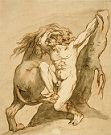
In 536 B.C. the 61st Olympiad sees famous Greek athlete Milo of Croton (Crotona) (-552 to ?), who won the boys' wrestling event in the last Olympics win the men's wrestling event for the first of 5x, becoming the source of all kinds of manly stories, incl. training by carrying a newborn calf on his back every day and working up to a 4-y.-o. cow, or holding his arm out with fingers outstretched and challenging anyone to pull his finger, er, sorry, that's Babe Ruth, bend his little finger. In 511 B.C.E. a Crotonian army commanded by Milo defeats the Sybarites; Milo dresses like Hercules in a lion's skin with a club. Too bad, one day after he reaches at least his forties a tree collapses on him and he is eaten by wild animals.
In 400 B.C.E. the 95th Olympiad sees Hippias of Elis (-460 to -399) compile a list of Olympic victors back to the 1st Olympiad.
In 388 B.C.E. the 98th Olympiad sees the first known case of cheating at the Olympics when boxer Eupolus of Thessaly bribes three opponents to take dives.
In 164 B.C.E. the 154th Olympiad sees Leonidas of Rhodes (b. -188) win all three foot race events (incl. the 200m stadion, the 400m diaulos, and the hoplitodromos race in armor, the first ever) in this and the next three straight Olympics, winning 22 gold medals, er, olive wreaths, nine in relays and 12 individual medals, a record which isn't surpassed until Aug. 11, 2016 by Am. swimmer Michael Fred Phelps II (1985-); "the most famous runner" (Pausanias); "He had the speed of a god" (statue of him in Rhodes) - pass the olive oil?

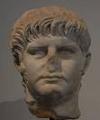

In spring-summer 67 C.E. Roman emperor (54-68) Nero (37-68) makes an artistic tour of Greece, in the course of which he enters several Olympic contests accompanied by 5K bodyguards, and wins every event, never failing to receive applause as the #1 poet, philosopher, actor, and musician of all time; along the way he orders Roman gen. Corbulo to commit suicide, and executes two ex-legates of Germany; later in the year he begins the Corinth Canal through the Isthmus of Corinth (from the W side) with 6K Jewish slaves, ceremonially beginning the work with a golden shovel, and having a slimmed-down statue of his pudgy self erected there, which survives to modern times; when he dies it remains unfinished, and is not finished until after the invention of dynamite (1893) - how would it have changed history?

In 389 C.E. the 292nd Olympiad is held; King Varasdates of Armenia wins in boxing, becoming the last Olympic champ until 1896 C.E. after Roman Catholic, er, Roman emperor (379-95) Flavius Theodosius (Gr. "God's gift") I (the Great) (346-95) bans the Olympic Games (founded in 776 B.C.E.) in 391, and orders the Temple of Zeus in Olympia, Greece closed; the Great Statue of Zeus (built in 456 B.C.E.) is moved to a palace in Constantinople, and is lost in a fire in 462 - no more dangly daylight shin-kicking fun around guilt-tripped filthy unwashed Christians?
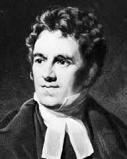
In 1823 the game of Rugby Football is allegedly first played at Rugby School in Rugby, Warwickshire, England (founded 1567). In 1838 Isle of Wight-born Oxford U.-educated classical scholar Thomas Arnold (1795-1842) is appointed headmaster of Rugby School in England (until 1841), going on to turn it into a model, introducing the study of history, modern languages, and mathematics, uttering the soundbyte: "I assume it as the foundation of all my view of the case, that boys at a public school never will learn to speak or pronounce French well, under any circumstances", hence it should be the goal to "learn it grammatically as a dead language"; he forbids teaching of physical science because "it must either take the chief place in the school curriculum, or it must be left out altogether"; Not that he liked it: "Rather than have [physical science] the principal thing in my son's mind, I would gladly have him think that the sun went round the earth, and that the stars were so many spangles set in the bright blue firmament. Surely the one thing needful for a Christian and an Englishman to study is Christian and moral and political philosophy"; he resists putting sport into the curriculum until 1850, listing his educational aims as cure of souls, moral development, and intellectual development, with the 1857 Thomas Hughes novel "Tom Brown's School Days" legendizing him; in 1866 Baron de Coubertin visits, becoming his admirer and helping inspire him to found the modern Olympics, calling him "the very cornerstone of the British Empire", and writing the soundbyte: "Thomas Arnold, the leader and classic model of English educators gave the precise formula for the role of athletics in education. The cause was quickly won. Playing fields sprang up all over England."
In 1893 after the 1866 discovery of dynamite finally makes it possible, the Corinth Canal in Greece, first begun by Nero in 67 C.E. opens after 40M francs are spent in 1830 by Greece, another 30M in 1869 by Austria, and 5M more are given to a Greek co. in 1890 to finish it; this is all probably irrelevant, but it's nice to stretch our imaginations and connect it with you know what.


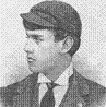

On June 23, 1894 Paris, France-born Baron Pierre de Fredy (Frédy), Baron de Coubertin (1863-1937) holds an internat. congress at the Sorbonne in Paris to resurrect the ancient Greek Olympics, and founds the Internat. Olympic Committee (IOC) - if this Millennium doesn't bring Christ back, it's time to give the ancient pagans another chance? On Apr. 6-15, 1896 the modern I (1st) Summer Olympic Games, organized by Pierre de Coubertin and the Union des Sport Athletiques are held in Athens, Greece (that's in Europe not Asia), with 241 athletes (all men) from 14 countries; the U.S. team is almost late in arriving on the German freighter Barbarossa because they didn't know that Greece still uses the Old Style calendar; the first championship (silver not gold) medal is awarded to Boston-born James Brendan Bennet Connolly (1868-1957) of the U.S. (who takes a leave of absence from Harvard, and is robbed in Naples and has to chase the bum down to get his boat ticket back) for the hop, skip, and jump (triple jump) (13.71m, almost 1m ahead of #2), making him the first Olympic champ since 389 C.E. (he also comes in 2nd in the high jump and 3rd in the long jump); crouch-starter (Boston U. student) Thomas Edmund "Tom" Burke (1875-1929) of the U.S. wins the 100m dash in 12.0 sec. and the 400m in 54.2 sec.; the Greeks remain winless until the last event, the marathon (ending in Panathenaic Stadium), which is won by 23-y.-o. mineral water supplier Spiridon (Spyridon) "Spiros" Louis (1873-1940); Haralambos Vassilakos of Greece places 2nd, and yet another Greek, Dimitries Velokas places 3rd; later it is discovered that Velokas had hidden a horse and carriage in a park and ridden part of the way, so his medal is stripped from him and awarded to Gyulla Kellner (1871-1940) of Hungary.



On May 14-Oct. 28, 1900 the Second (2nd) (II) Summer Olympic Games, held in Paris, France as part of the World Fair feature 1K+ athletes competing in 19 sports, with women competing for the 1st time; too bad, they are marred by a scrap after the French refuse to hold the finals on Bastille Day (Sat.), followed by half a dozen Americans withdrawing because they won't run on Sunday; tennis player Charlotte Reinagle Cooper (1870-1966) wins the first-ever U.S. women's gold; Raymond Clarence "RaY" Ewry (1874-1937) overcomes child polio to win eight golds for the U.S.; John Walter Beardsley Tewksbury (1876-1968) wins five medals incl. two golds then goes on to become a dentist.

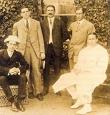

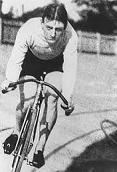


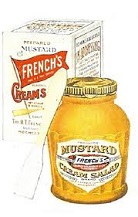
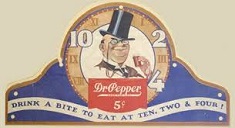
On Apr. 30-Dec. 1, 1904 the St. Louis World's Fair (Louisiana Purchase Exhibition) is held in commemoration of the centennial of the Louisiana Purchase a year late, and 20M visitors attend it; Cotton candy (Fairy Floss) (invented by dentist William Morrison), French's Mustard, and Dr Pepper (not "Dr. Pepper") are introduced; on Apr. 30 Pres. Roosevelt presses a telegraph key at the White House to signal Gateway to the West Arch, designed by Finnish-born Eero Saarinen (1910-61) NOT (wait till 1968); iced tea, invented by plantation owner Richard Blechynden, and peanut butter, provided by C.H. Sumner, along with the Egyptian fan dancer are the hits of the fair; Geronimo appears at the fair; on July 1-Nov. 23 the Third (3rd) (III) (1904) Summer Olympic Games are held as part of the fair (first Olympics held in the U.S.), with 651 athletes (incl. 6 women) from 12 countries competing in 94 events, with the Russo-Japanese War and the remote location keeping most of the top athletes from attending; boxing, weightlifting, freestyle wrestling, and decathlon debut; on Aug. 12-13 "Anthropology Days" are held to pit aborigines from around the world with white men for curious anthropologists; James Davies "Jim" Lightbody (1882-1953) of the U.S. wins golds in the 800m and 1.5km (world record) and steeplechase, and silver in the 4 mi. team event; U.S. gymnast George Eyser (1871-?) wins six medals despite a wooden left leg; Emil A. Rausch (1883-1954) of Germany wins two golds and a bronze in swimming, becoming the last man to win an Olympic gold in sidestroke; the Buffalo Germans (founded 1895), coached by Dr. Fred Burkhardt win the AAU nat. basketball tournament, which serves as a demonstration sport at the 1904 St. Louis Olympics; in 1907-10 they have a 111-game winning streak; they disband in 1925 with a 792-86 record; Columbia U. basketball star Marcus Latimer Hurley (1883-1941) of the U.S. wins four golds in cycling, and bronze in the 2-mi. race; Beals C. Wright (1879-1961) of the U.S. wins golds in singles and doubles tennis; the marathon is run in dusty hot weather, and is a clown show, with the accompanying vehicles kicking up dust; Frederick "Fred" Lorz (1883-1914) is declared the winner until it is found he only ran 9 mi., got in a car, then got back out with 5 mi. to go, and is banned for 1 year by the AAU, winning the Boston Marathon next year; Cuban postman Felix de la Caridad Carvajal y Soto (Andarin Carvajal) (1875-1949) (who runs in cut-off pants) stops in an orchard and eats rotten apples, causing him to get sick and take a nap, after which he comes in 4th; South African Tswana tribesmen Len Tau (Taunyane) and Yamasani (Jan Mashiani) become the first black Africans to compete in the Olympics, coming in 9th and 12th, although Tau was chased 1 mi. off-course by dogs; the winner is British-born Thomas J. Hicks (1875-1963) of the U.S. (winner of the 1904 Boston Marathon), who is given two doses of 1 mg. of strychnine sulfate mixed with brandy by his trainers to revive him; too bad, only 42 events have athletes not from the U.S., causing the all-U.S. events to be combined with U.S. championships, and most of the real Olympic events are held on Aug. 29-Sept. 3; the whole thing is such a joke that new (intercalated) games are arranged for 1906 in Athens; on July 23 the ice cream cone is allegedly invented by money-money-money Charles E. Menches during the fair when his girlfriend rolls one of the layers of an ice cream sandwich around some flowers; either that, or Syrian zalabia (waffle) seller Earnest A. Hamwi suggests using his product.
On Apr. 7, 1906 Mt. Vesuvius erupts, devastating Naples and causing the planned 1906 Athens Summer Olympics to be cancelled so that the funds can be used to rebuild it, and London is selected for a 1908 Olympics.

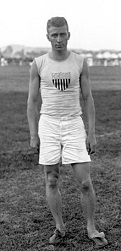

On Apr. 27-Oct. 31, 1908 the IV (4th) Summer Olympic Games are held in London in the new White City Stadium (cap. 68K); the Americans refuse to dip the U.S. flag to the royal family, beginning a tradition, and win 15 out of 28 track and field golds; Alfred Carlton Gilbert (1884-1961) of the U.S., inventor of the pole vault box ties for gold with Edward Tiffin Cook Sr. (1888-1972) of the U.S., going on to invent the Erector Set in 1913; on July 24 after British Queen Alexandra extends the marathon from less than 25 mi. to 26.2 mi. (26 mi. 385 yards) (42.195 km) to put the finish line in front of the king's box in White City Stadium (starting line in front of Windsor Castle), becoming the official std., leader Dorando Pietri (1885-1942) of Italy runs the wrong way in the stadium, falls down 5x, and is propped up by two officials as Arthur Conan Doyle cheers him on with a megaphone, winning with a time of 2 hours 54 min. 46 sec. (10 min. for the last 350m), causing a U.S. protest, followed by disqualification, allowing John Joseph "Johnny" Hayes (1886-1965) of the U.S. to get the gold, becoming the first male Am. athlete (Thomas Hicks in 1904, Frank Shorter in 1972), causing long-distance running to increase in popularity in the U.S.; after a public outcry, Alexandra awards Pietri a gilded silver cup as a consolation prize, becoming an internat. celeb and winning several more races before retiring in 1911 at age 26 with 200K lire in prize money, which he loses in a hotel venture; the first Olympics with winter events (four figure skating events), which have to be delayed until Oct.; "The most important thing is not to win but to take part" is announced as the Olympic creed, created by a bishop from Penn.



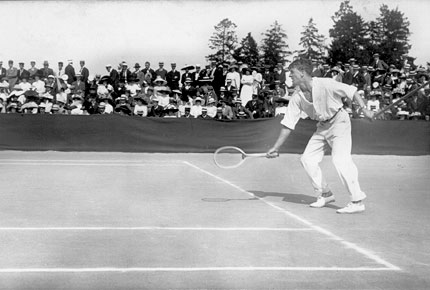

On May 5-July 22, 1912 the V Summer (5th) Olympic Games in Stockholm, Sweden are dominated by All-American James Francis "Jim" Thorpe (1888-1953), a Sac and Fox Indian with some Irish descent who wins the pentathlon (4 firsts) and the decathlon (8412.96 out of a possible 10K pts.), then responds to the compliment "You, sir, are the greatest athlete in the world" by Swedish king Gustavus V with the immortal soundbyte "Thanks, king!"; West Point grad. George Smith Patton Jr. (1885-1945) places 5th in the pentathlon; swimming champ ("Father of American Surfing") Duke Kahanamoku (1890-1968) of Hawaii appears in a sleek swimsuit with bikini-like underdrawers, shocking Anglo-Saxons plagued by sex guilt, and revolutionizing sprint swimming by replacing the scissors kick with the flutter kick, winning a gold medal in the 100m freestyle and a silver medal in the men's 4x200m freestyle relay; on July 15 Portuguese marathon runner (first ever) Francisco Lazaro (Lázaro) (b. 1891) becomes the first Olympic athlete to die in competition (next 1960) after he waxes his body to prevent sunburn, interfering with perspiration; Charles Lyndhurst Winslow (1888-1963) of South Africa wins gold in men's singles and doubles tennis; Giovanni Pellegrini wins the first gold medal in painting; until 1948 medals are awarded to sculptors, architects, writers, and musicins. In 1912 Baron Pierre de Coubertin designs the Olympic Symbol of five interlocking rings colored blue-yellow-black-green-red on a white background, which covers all the colors in the flags of participating nations so far; it debuts in the 1920 games.


In Jan. 1913 after newspaper headlines announce that he once played pro baseball, U.S. athlete (mixed Amerindian and white) James Francis "Jim" Thorpe (1888-1953) is stripped of the two gold medals he won in the 1912 Olympic Games and his amateur status revoked because in 1909-10 he received $2 a game for playing semi-pro baseball in the Eastern Carolina League in Rocky Mount, N.C., but didn't use an alias like other college summer players; his runner-up, Karl Hugo Wieslander (1899-1976) of Sweden refuses to accept Thorpe's decathlon medal; on Oct. 13, 1982 the Internat. Olympic Committee (IOC) finally agrees to restore Jim Thorpe's 1912 gold medals; they are officially returned to him in Los Angeles on Jan. 18, 1983 - thanks, king? When Thorpe's medals are reinstated, Wieslander is declared joint winner.
On Aug. 4, 1914 - Nov. 11, 1918 the horrific World War I causes 15M deaths and 39M military casualties, and destroys the Old Order of formerly Christian Europe.
In 1916 the VI (6th) Summer Olympic Games, scheduled to be held in Berlin, Germany are cancelled because of the Great War; Germany is not invited to the 1920 games - first we take Manhattan, then we take Berlin?







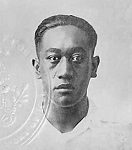
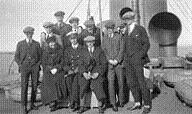
On Aug. 14-Sept. 12, 1920 after an 8-year hiatus the VII (7th) Summer Olympic Games are held in Antwerp, Belgium (to honor WWI suffering), with 2,626 athletes from 29 nations participating in 156 events in 22 sports; Germany, Austria, Hungary, Turkey, and Bulgaria are banned; the Olympic Oath is first uttered, the Olympic Flag is first flown, and doves are first released to symbolize peace; the U.S. team revolts against its barracks-style living quarters and threatens to boycott the games; the U.S. wins the most events, with 41 golds, 27 silvers, and 27 bronzes; figure skating and ice hockey debut; Finnish runner Paavo Nurmi (1897-1973) debuts, winning the first of six gold medals (1920, 1924, 1928), and breaking U.S. dominance in track and field with nine medals; Ethelda M. Bleibtrey (1902-78), who was arrested in 1919 for nude bathing for swimming without stockings wins three golds (100m, 300m, 400m relay) in swimming, becoming the first U.S. woman to win Olympic gold, and one of the first women to wear a flapper "bob"; Duke Kahanamoku (1890-1968) of Hawaii wins a gold medal in the 100m freestyle, beating fellow Hawaiian Pua Kele Kealoha (1902-89), and a gold medal in the 4x200 freestyle relay along with Kealoha, who allegedly could swim from Molokai to Oahu but not the other direction; Albert George Hill (1889-1969) of Britain wins golds in the 800m and 1500m, and silver in the 3000m; "the Calif. Cannonball" Charles William "Charlie" Paddock (1900-43) of the U.S. wins the 100m in 8.3 sec.; his teammate "the New York Thunderbolt" Jackson Volney Scholz (1897-1986) makes a mistake and looks at him and comes in 2nd at 8.4; 72-y.-o. Oscar Gomer Swahn (1847-1927) of Sweden becomes the oldest Olympic gold medal winner (team double-shot running deer event) (until ?); the last Olympics to host the tug-of-war event (Britain gold, Netherlands silver, Belgium bronze). figure skating makes its debut; Canada (WInnipeg Falcons) win the gold medal in the debut of Olympic ice hockey, followed by the U.S. and Czech.


On Jan. 25-Feb. 5, 1924 the I (1st) (First) Winter Olympic Games (originally called "Internat. Winter Sports Week") are held in Chamonix, France, at the foot of Mount Blanc, with 293 participants from 16 nations in eight sports and 16 events; Winter Games are held the same year as the Summer Games until 1992; the first gold medal goes to Charles Jewtraw (1900-96) of the U.S. in 500m speedskating; 11-y.-o. Sonja Henie of Norway comes in last in the ladies' figure skating competition, but takes gold in the next three Winter Olympics; after the judges goof, Anders Haugen (1888-1984) of the U.S. (who really came in 4th) is awarded the bronze medal in ski jumping, becoming the final medal awarded, and it takes 50 years to discover that the real winner should have been Thorleif Haug (1894-1934) of Norway, who won all three Nordic skiing events; in 2006 the IOC retroactively awards medals to the curling teams.














Chariots of Fire? On May 4-July 27, 1924 the VIII (8th) (Eighth) Summer Olympic Games are held in Paris, with 3,092 participants from 44 nations in 24 sports and 137 events; the U.S. wins 12 gold medals; "Flying Finn" Paavo Nurmi (1897-1973) wins four gold medals; British runners Harold Maurice Arahams (1899-1978) (Jewish) (known for the Abrahams Dip) and "the Flying Scotsman" Eric Henry Liddell (1902-45) (rhymes with fiddle) (Christian) win gold medals in the 100m (Sun.) and 400m races, respectively, wearing newfangled spiked running shoes made by Reebok Internat. Ltd. of England, originally J.W. Foster & Sons, which introduced the first spiked running shoes in 1895; Abrahams stirs displeasure of English Christian elitists by hiring half-Italian half-Arab prof. trainer Scipio Africanus "Sam" Musabini (1867-1927); starting blocks aren't used for another 10 years; after making worldwide news for refusing to run on Sun. (the Sabbath), devout Scottish Presbyterian Liddell becomes the first Scot to win a gold medal; before the 400m race an Am. masseur slips a piece of paper into his hand with a quotation from 1 Sam. 2:30 ("Those who honor me I will honor"), which he runs with; Abrahams becomes the first Euro to win the 100m, beating U.S. favorites "the Calif. Cannonball" Charles William "Charlie" Paddock (1900-43) and "the New York Thunderbolt" Jackson Volney Scholz (1897-1986); Yale U. medical student Benjamin McLane Spock (1903-98) wins a gold medal as part of the men's 8-man rowing team; Romanian-born Am. swimmer Peter John "Johnny" Weismuller (1904-84) wins a record two solo golds in swimming, incl. the 100m freestyle, with Hawaii's Duke Kahanamoku (1890-1968) winning silver and his brother Samuel Alapai Kahanamoku (1902-66) winning bronze; "Little Miss Poker Face" Helen Wills Moody (Helen Newington Wills Roark) (1905-98) wins a record two solo golds in swimming, incl. the 100m freestyle, with Duke Kahanamoku winning a silver medal in the 100m freestyle, and wins two golds in tennis (singles and doubles), going on to win 31 Grand Slam titles incl. 19 singles titles, and a record eight Wimbledon singles titles, which isn't surprassed until Martina Navratilova in 1990; William Butler Yeats' brother Jack B. Yeats wins a silver medal in painting for his work "The Liffey Swim"; the last year that tennis is an Olympic sport until 1988; 60K watch Uruguay defeat Switzerland 3-0 for the gold medal in soccer, becoming the sport's first worldwide exposure.

On Feb. 11-19, 1928 the Second (2nd) (II) Winter Olympic Games are held in St. Moritz, Switzerland; the winter part of the 1924 Olympics is retroactively renamed the First Winter Olympics; skeleton racing is introduced, becoming the first sliding sport; Sonja Henie (1912-69) of Norway wins her first gold in figure skating, and repeats in 1932 and 1936; Norway wins the games with 6 golds, 4 silvers, and 5 bronzes (15 total), vs. 6 for the U.S.


On July 28-Aug. 12, 1928 the IX (9th) (1928) Summer Olympic Games are held in Amsterdam, with 3,015 participants in 120 events in 22 sports; women participate for the first time in gymnastics and athletics; athletes from 28 different nations win golds (most until 1968); Asian athletes win gold for the 1st time; tennis is dropped (until ?); Paavo Nurmi of Finland wins his 6th gold medal; 19-y.-o. Percy Alfred Williams (1908-82) of Canada wins the 100m and 200m; Australian rower (sculler) Henry Robert "Bobby" Pearce (1905-76) pauses in his quarterfinal to allow a family of ducks to pass, and still wins, and goes on to win the gold; the soccer tournament is so disappointing that FIFA decides to organize their own, the World Cup, and open it to pros starting in 1930; Coca-Cola begins sponsoring the Olympics, becoming the longest-lasting sponsor (until ?).

In 1931 Franz Schmid (1905-92) and his brother Toni Schmid (1909-32) climb the N face of the Matterhorn for the first time, and are awarded a gold medal for mountaineering next year at the Los Angeles Olympics 75 days after Toni is killed in a climbing accident on May 16, becoming the first posth.-awarded Olympic medal (until ?).
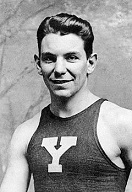
On Feb. 4-15, 1932 the Third (3rd) (1932) Winter Olympic Games are held in Lake Placid, N.Y., with athletes from 17 countries competing in 14 events and three demo events, curling, sled dog race, and women speed skating; the U.S. participates for the 1st time, and wins 6 golds, 4 silvers, and 2 bronzes (12 total, the most); on Feb. 15 U.S. bobsledder Edward Patrick Francis "Eddie" Eagan (1898-1967) becomes the first athlete to win gold in both the Summer and Winter Olympics (1920 boxing gold) (until ?).





The Babelympics? On July 30-Aug. 14, 1932 the Olympic Flame is inaugurated in the X (10th) Summer Olympic Games in Los Angeles, Calif., held smack dab in the middle of the Great Depression, causing less than half of the 1928 participants to attend, even being stood up by Pres. Herbert Hoover, becoming the first Olympic Games not attended by the sitting head of the govt. of the host country, which doesn't stop them from making $1M profit; 1,332 athletes from 37 nations participate in 116 events in 14 sports; the first Olympic Village is built in the Baldwin Hills (men only); the first use of a victory podium; Jim Thorpe is a press reporter at the Games; Paavo Nurmi is banned for being a pro; the U.S. wins bronze in field hockey because there are only two other nations competing (India gold, Japan silver); Thomas Edward "Eddie" Tolan (1908-67) ("the Midnight Express") of the U.S. wins gold in the 100m and 200m, becoming the first African-Am. world's fastest human; Stanislawa Walasiewicz (Stella Walsh) (1911-80) of Poland wins gold in the women's 100m, and after her death it's discovered that she's intersex; Baron Takeichi Nishi (1902-45) of Japan wins a gold in the equestrian show jumping individual event on his horse Uranus, becoming a tank unit cmdr. and getting KIA during the Battle of Iwo Jima; "unnatural" (not delicate or feminine) Port Arthur, Tex.-born Mildred Ella "Babe" Didrikson (1911-56) ("the female Babe Ruth") sets four world records in one afternoon during the Olympic trials, then sets world records in the javelin throw (143' 4") and 80m hurdles (11.7 sec.) for two golds, then wins a silver in the high jump (nobody's perfect?); she earns All-Am. honors in basketball 1930-2, appears in vaudeville, then takes up golf; actress-swimmer Eleanor G. Holm (1913-2004) wins gold in the 100m backstroke, setting a world record in that plus the 200m backstroke, then despite having not lost a race in seven years and being the first female swimmer chosen for three U.S. Olympic teams, she is unceremoniously thrown off the team in 1936 by Avery Brundage after being caught drinking, shooting craps, and singing in cabarets past the 9 p.m. curfew on the boat trip to Germany, although if a man did it no action would have been taken?; the publicity makes her a star with the press, and she meets Adolf Hitler and Hermann Goering, who gives her a silver swastika, which she has later copied in gold with a diamond Star of David inside it after she marries Jewish hubby Billy Rose in 1939; they divorce in 1954.
On May 25, 1935 Jesse Owens (1913-80) of Ohio State U. sets six world records in track in 45 min. in Ann Arbor, Mich.: 100 yd. dash (10.2 sec.), long jump (26 ft. 8.25 in.), 220 yard (200m) dash, 220 yd. (200m) low hurdles.

On Feb. 6-16, 1936 the IV (4) (1936) Winter Olympic Games are held in Garmisch-Partenkirchen, Germany, with 646 athletes (566 men, 80 women) from 28 nations competing in 17 events in 4 sports; Alpine skiing makes its debut; Sonja Henie (1912-69) of Norway wins her 3rd straight gold in figure skating, then stinks herself up by having her photo taken shaking Hitler's blondes-only-need-apply rock steady-not hand?; Norway wins the games with 7 golds, 5 silvers and 3 bronzes.


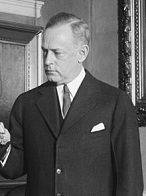

















The greatest chance to stop WWII with the fellowship of sports is in the hands of a black, two Jews, and a mental cripple at the Big 1936 Aryan Olympics? On Aug. 1-16, 1936 Nazi Germany, led by Adolf Hitler (1889-1945) hosts the XI (11th) (1936) Summer Olympic Games in Berlin, after the first-ever torch relay from Olympia, Greece, devised by Nazi filmmaker Leni Riefenstahl, who films the dramatic lighting of the flame in Olympic Stadium, the final torchbearer being graceful certified blonde-blue Aryan runner Fritz Schilgen (1906-2005), who does not compete (2nd time the Olympic flame is used); 3,963 athletes (incl. 331 women) from 49 nations participate in 129 events in 19 sports; the first televised Olympics, beamed to TV sets in Berlin and Potsdam, and later used by aliens from outer space as a signal that earthlings are ready for Carl Sagan's Contact?; basketball and handball debut as outdoor sports (handball doesn't appear again until 1972); French and Canadian athletes give an Olympic salute at the opening ceremony which looks dangerously close to the Nazi salute?; Haiti and Liechtenstein discover that their flags are identical, forcing mods; the U.S. almost boycotts the Olympics until a backroom power play, with U.S. asst. Navy Secy. (since Apr. 1, 1929) Ernest Lee Jahncke (1877-1960) being expelled from the IOC, and pro-Nazi USOC pres. #5 (since 1928) Avery Brundage (1887-1975) put in his place, maneuvering the USOC into a close vote to send a team, which most Jewish athletes boycott, while blacks welcome the propaganda chance (showing the cracks in the U.S. Jewish-black alliance, or is it something about every Jew and Aryan being shorter down there and the black bucks hoping to get lucky with the German girls, er, forget it?) (Brundage utters the soundbyte this year: "I am fed up to the ears with women as track and field competitors... her charms sink to something less than zero. As swimmers and divers, girls are as beautiful and adroit as they are ineffective and unpleasing on the track") (after the Olympics, his construction co. gets a contract to build the German Embassy in the U.S., and after he dies he is revealed to have been the a-hole who got American Injun Jim Thorpe's medals taken away for playing semi-pro ball); Hitler orders the Berlin police to arrest all gypsies before the games and keep them in a special camp, but exempts foreign visitors from Nazi anti-gay laws?; signs warning shoppers about Jewish-owned shops are taken down, but Hitler initially has signs mounted over toilets reading "Dogs and Jews not allowed", then backs down and removes them after Belgian IOC pres. (since 1925) Count Henri de Baillet-Latour (1876-1942) (who went on record as saying that women shouldn't take part in the Olympics) faces him down; only pure Aryan athletes are permitted by Hitler to compete for Germany; most athletes (incl. from the U.S., incl. Jesse Owens) wear track shoes made by ardent Nazi brothers Adolf "Adi" Dassler (1900-78) and Rudolf Dassler (1898-1974) of Herzogenaurach, Bavaria (12 mi. from Nuremberg); too bad, after the war, Adi rats Rudolf out as a member of the SS, causing them to split, after which in 1948 Rudolf founds Puma nearby across the Aurach River, and Adi renames his co. Adidas (run like a Nazi?); (the solution to world peace was on their feet all the time?); Carla de Vries from Norwalk, Calif. walks up to Hitler at his seat in the stands next to Gen. August von Mackensen, gets him to sign an autograph, then kisses him on the cheek, pissing him off and causing him to fire several Schutzstaffel security guards; the well-heeled lily-white Aryan German athletes, while winning the most medals as a group and proving Aryan superiority to the Aryans are upstaged in the non-German world by black U.S. athlete (former Ohio State U. star) (son of a sharecropper and grandson of slaves) Jesse Owens (1913-80), "the Ebony Express", who becomes the 1st U.S. and 2nd athlete ever to win three individual Olympic golds, in the 100m (10.3 sec.) (Aug. 3), long jump (26 ft. 5-5/16 in.) (Aug. 4), and 200m (20.7 sec.) (Aug. 5); the runner-up in the 200m dash is Matthew MacKenzie "Mack" Robinson (194-2000), older brother of baseball player Jackie Robinson; after Avery Brundage kisses Nazi butt by pulling Jews Martin Irving "Marty" Glickman (1917-2001) and Sam Stoller (1915-85) (the only two Jews on the U.S. Olympic team) out of the 4x100m relay, they put in Owens and yet-another-black-athlete Ralph Harold Metcalfe Sr. (1910-78) (world's fastest human from 1932-4, who placed 2nd to Owens in the 200m), and on Aug. 9 the U.S. team wins by 15 yards, setting a record of 39.8 sec., which lasts 20 years (until 1956); Hitler allegedly snubs "black nigger ape" Owens, but actually doesn't, as he decided to skip all medal presentations after the first day, when he did snub two U.S. blacks, high jumpers Cornelius Cooper "Corny" Johnson (1913-46), (who won the first U.S. gold) and David Donald "Dave" Albritton (1913-94); not that Owens is in love with the white racist U.S. so much either, saying "Hitler didn't snub me, it was FDR who snubbed me. The President didn't even send me a telegram"; black athlete Archibald Franklin "Archie" Archie Williams (1915-93) wins another gold for the U.S. in the 400m; blonde model Aryan German long jumper Carl Ludwig "Luz" "Lutz" Long (1913-43) does an un-PC thing by giving Owens advice that keeps him from elimination in the preliminary, then when Owens wins the gold, running out to congratulate him, clutching his right hand with his left and hoisting their arms into the air while facing toward Hitler, becoming Owen's defining moment of the Olympics, saying "It took a lot of courage to befriend me in front of Hitler... You can melt down all the medals and cups I have and they wouldn't be a plating on the 24 carat friendship that I felt for Luz Long at that moment"; Owens was not given segregated facilities in Germany like back in the good ole USA, and was idolized by German fans?; (if Luz Long coulda taken over Germany and Jesse Owens the U.S. right then, send me the screenplay?); too bad, fellow black athlete ("world's fastest human") Eulace Peacock (1914-96), who beat Owens 5x in a row in the 100m the year before is injured and doesn't compete (just what the Yanks need, to field a strutting black peacock in front of Herr Hitler?); on Aug. 8 the Washington U. crew team, representing the U.S. comes behind to pass Germany and edge Italy by 0.6 sec. to win the rowing gold in front of Hitler; the first basketball gold goes to the U.S., who beats Canada 19-8 in a mud court in the rain, where dribbling is impossible, and spectators have to stand; honorary-Aryan India wins the gold in field hockey, continuing their streak (1928-56); Konrad Frey (1909-74) and Karl Alfred Markus Schwarzmann (1912-2000) of Germany each win three golds in gymnastics, and Frey wins six medals and Schwarzmann wins five medals total, beating Owens' four (which are all gold); Estonia competes for the 1st time (next 1992), and godlike Aryan-looking Kristjan Palusalu (Trossmann) (1908-87) (who is later treated like merde during WWII by the Soviets, who force him to fight Finland, after which he defects to their side) wins two golds in men's heavyweight wrestling; Germany wins individual and team gold in all three equestrian events; Italy wins the gold in soccer, which is touted as a big V by Benito Mussolini; Japan wins a gold and bronze in the marathon using Korean runners under Japanese names; Danish journalist Inga Arvad (Petersen) (1913-73) accompanies Hitler at the Olympics and interviews him 2x, then has a bedroom affair with JFK in 1941-2, which the FBI tapes, holding it against him for life; in 1945 she marries Am. cowboy star Tim McCoy (1891-1978).
On July 16, 1938 Tokugawa Soyeshima sends a telegram to the Internat. Olympic Committee saying that Japan would not be able to host the 1940 Winter Olympics due to a little ole fight with China; on Sept. 3 the games are awarded to Helsinki.



On Sept. 1 1939 - Sept. 2, 1945 horrific $3.5T World War II results in 24M military and 49M civilian deaths, and features the low point of the Jewish Holocaust (Shoah) by the German Nazis, I guess it was the Jews' fault for not ransoming themselves to go to Israel before they could round them up for the camps. The whole experience turned Jews from lovers into fighters, ramping up the Zionist movement with full world sympathy and support by new world superpower U.S., which had its own guilt trip because on Nov. 24, 1942 Budapest-born Am. Zionist leader Rabbi Stephen Samuel Wise (1874-1949) announced in a press conference in Washington, D.C. that he was authorized by the U.S. State Dept. to confirm that the Nazis had murdered 2M Jews as part of a plan to exterminate all Jews in Europe; too bad, the nat. newspapers didn't consider it front page news, and the U.S. govt. did nada. After the war ended and Americans toured the concentration camps in horror, Polish-born Jewish scholar Raphael Lemkin (1900-59), who single-handedly led an unsuccessful campaign to get the League of Nations to give internat. protections against genocide starting in 1933 finally got what he wanted after his own people got it, namely the Dec. 9, 1948 U.N. Convention on the Prevention and Punishment of the Crime of Genocide (Gen. Assembly Resolution 260), which didn't come in force until Jan. 12, 1951, and which the U.S. still didn't ratify until 1988.
The XII (12th) 1940 Summer Olympics scheduled for Tokyo are cancelled, as are the XIII (13th) 1944 Summer Olympics scheduled for Hell.

On Apr. 3, 1940 Cornelius "Dutch" Warmerdam (1915-2001) of the U.S., known for using a bamboo pole becomes the first to vault over 15 ft. (4.57m) at UCB; in 1942 he sets a pole vault record of 15'7-3/4" (4.77m); nobody else vaults over 15 ft. until 1951; too bad, he goes pro before an Olympics can be held in 1948.

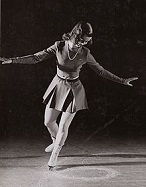
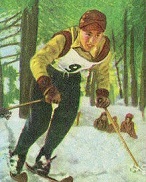

On Jan. 30-Feb. 8, 1948 the V (5th) Winter Olympic Games are held in St. Moritz, Switzerland; 669 athletes from 28 nations compete in 22 events in four sports; military patrol (biathlon) and winter pentathlon are demonstrated; Richard Totten "Dick" Button (1929-) becomes the first U.S. athlete to win a figure skating title, and the first to perform a double axel in the Olympics; Norway wins all three medals in ski jumping; Barbara Ann Scott (1928-2012) of Canada AKA Canada's Sweetheart becomes the first Canadian to win the ladies' singles gold medal in figure skating; French alpine ski racer ("the Parisian of Val d'Isere") ("the Madman of Downhill") Henri Oreiller (1925-62) wins the first Olympic gold in downhill, 4 sec. ahead of the silver medalist; he also wins gold in combined, and bronze in special slalom; Gretchen Fraser (1919-94) wins the first U.S. gold in Alpine skiing.



On July 29-Aug. 14, 1948 the XIV (14th) Summer Olympic Games, Philip John Noel-Baker (1889-1982) are held in London after a 12-year hiatus caused by Hitler; 59 nations compete in 136 events; the U.S. wins the most medals, and Britain comes in 12th (23); ripped-legged "Flying Housewife" Francina Elsje "Fanny" Blankers-Koen (1918-2004) of the Netherlands wins four golds; "boy wonder" Robert Bruce "Bob" Mathias (1930-2006) of the U.S. wins the decathlon, and repeats in 1952 after playing in the 1952 Rose Bowl (first until ?).
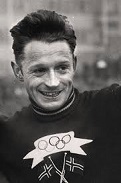

On Feb. 14-25, 1952 the VI (6th) Winter Olympic Games are held in Oslo, Norway, with 694 athletes representing 30 countries in four sports and 22 events; bobsledders are limited as to bodyweight, changing the sport; bandy (primitive ice hockey) is a demo sport; Hjalmar Johan "Hjallis" "King Glad" Andersen (1923-2013 of Norway wins three of four speed skating events; Germany wins the four-man and two-man bobsleigh events; Richard Totten "Dick" Button (1929-) of the U.S. performs the first triple jump in internat. competition to win his 2nd straight figure skating title; Norway wins the most medals, 16 incl. 7 gold; the games close with the presentation of the Oslo Flag, which is passed to each new Winter Olympics host city (until ?).


The Mouse That Roared Year in the Olympics? On July 19-Aug. 3, 1952 the XV (15th) Summer Olympic Games are held in Helsinki, Finland (most northernly summer Olympics), with 4,955 athletes from 69 nations competing in 149 events in 17 sports; the first participation for the Soviet Union and Israel; Japan is invited, along with Germany, and West Germany attends, but East Germany doesn't; the U.S. wins 43 golds, the Soviet Union 22, Hungary 22; first time that Germany wins zero golds (until ?); Czech runner Emil Zatopek (Zátopek) (1922-2000) wins the 5K meters, the 10K meters, and the marathon in record time, becoming a legend; Joseph "Josy" Barthel (1927-92) of Luxembourg wins the 1500m, becoming the first Luxembourger to win Olympic gold (until ?).


On Jan. 26-Feb. 5, 1956 the VII (7th)(1956) Winter Olympic Games are held in Cortina d'Ampezzo, Italy, with 821 athletes from 32 nations competing in 24 events in 4 sports; the first appearance of the Soviet Union gives the Hungarians their chance to get a little payback when they defeat them in water polo; Tenley Emma Albright (1936-) wins the first U.S. gold in female figure skating, then enrolls in Harvard Medical School, later becoming a surgeon; the Soviet Union wins the games with 16 medals (7 gold, 3 silver, 6 bronze); Anton Engelbert "Toni" Sailer (1935-2009) of Austria becomes the first skier to win all three Olympic alpine skiing events, downhill, slalom, and giant slalom.





On Nov. 22-Dec. 8, 1956 the XVI (16th) (1956) Summer Olympic Games are held in Melbourne, Australia; the Dutch refuse to attend because of the Soviet Union's repression of Hungarian freedom fighters; 3,314 athletes from 72 nations compete in 145 events in 17 sports; prior to the Olympics (at the Australian nat. championships 1500m final) John Michael Landy (1930-) (2nd man to break the 4 min. mi. barrier on June 21, 1954 in Turku, Finland) stops to help fellow athlete Ron Clarke after he falls, then goes wild in the final two laps to win the race, making him a hero, causing him to be chosen to recite the Olympic Oath; 5'8" Ukrainian-born long distance runner Vladimir Petrovich (Volodymyr Petrovych) Kuts (1927-75) of the Soviet Union wins the 5km in 13 min. 39.6 sec., and the 10km in 28 min. 45.5 sec.; Iain Murray Rose (1939-2012) of Australia wins two solo golds in swimming, first time since Johnny Weismuller of the U.S. in 1940; the almost all-white U.S. basketball team stars black players 6'10" William Felton "Bill" Russell (1934-) and 6'1" K.C. Jones (1932-), and stomps the Soviet Union by at least 30 points a game (89-55 in the final) to win the gold; next year Russell and Jones go to the Boston Celtics and create a dynasty, with Russell's 7'4" wingspan making him great at shot-blocking, man-to-man defense, and rebounding; Jack Byham sends thousands of boomerangs to Olympics-goers.


On Feb. 18-28, 1960 the VIII (8th) Winter Olympic Games are held in Squaw Valley, Calif., becoming the first North Am. Winter Games since 1932; an IBM 305 RAMAC becomes the first computer used in an Olympics; U.S. vice-pres. Richard Nixon opens the games; U.S. figure skater Carol Elizabeth Heiss (1940-) becomes the first woman chosen to recite the Olympic Oath, going on to win a gold medal; South Africa makes its first appearance, and its last until 1994; women's speed skating and men's biathlon debut; the bobsledding event is cancelled as too expensive; artificial refrigeration is first used for speed skating events; David Wilkinson Jenkins (1936-) of the U.S. wins gold for men's figure skating; on Feb. 27 the U.S. Olympic hockey team defeats the Soviet team 3-2 on its way to win the gold medal; the Zamboni ice-resurfacing machine makes its debut, boosting it into internat. prominence, esp. as some connect it with the U.S. hockey win.






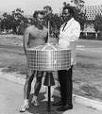



On Aug. 25-Sept. 11, 1960 the XVII (17th) Summer Olympic Games are held in Rome, Italy in the new Palazzo dello Sport (PalaLottomatica) (opened 1960) and Palazzetto dello Sport (Sports Palace) (opened 1957); 5,338 athletes from 83 nations compete in 150 events in 17 sports; the last appearance for South Africa until 1992; the Soviets win 15 of 16 medals in women's gymnastics; the Japanese men's gymnastics team wins the first of five successive golds (until 1976); future King Constantine II of Greece wins a gold in Dragon Class sailing; former polio patient "La Gazella" Wilma Rudolph (1940-94) becomes the first African-Am. to win three gold medals in a single Olympics (100m, 200m, 4 x 100m relay); barefoot Ethiopian Abebe Bikila (1932-73) wins the marathon, becoming the first black African to win a gold; dominating Herbert James "Herb" Elliott (1938-) of Australia wins the 1500m in 3 min. 35.6 sec.; the 100m men's freestyle swimming race is marred by officials who reverse the automatic timers and award the win to John Devitt (1937-) of Australia over Lance Melvin Larson (1940-) of the U.S., who receives a gold medal for the butterfly leg of the men's 4x100m medley relay along with Frank McKinney (backstroke), Paul Hait (breaststroke), and Jeff Farrell (freestyle), setting a world record of 4:05.4; Armin Hary (1937-) of West Germany (known for rumors of accepting cash under the table to wear Adidas and/or Puma shoes) wins the gold in the 100m with a time of 10.2 sec., becoming the first non-U.S. winner since Percy Williams of Canada in 1928; Rafer Lewis Johnson (1935-) of the U.S. defeats friend-rival "Iron Man of Asia" C.K. Yang (Yang Chuan-kwan) (1933-2007) of Taiwan in the decathlon; on Aug. 26 Danish cyclist Knud Enemark Jensen collapses then dies in the hospital (2nd Olympic athlete death since 1912), and amphetamines are found in his blood; on Sept. 5 Cassius Marcellus Clay Jr. (1942-2016) (later Muhammad Ali) wins a gold medal in light-heavyweight boxing, and returns to the U.S. to find he's still treated like an N-word, later throwing it in the Ohio River after being refused service at a Louisville diner while wearing it around his neck; he goes 100-5 in his amateur career; the U.S. men's basketball team under U. of Calif. coach (1954-60) Peter Francis "Pete" Newell (1915-2008), incl. Oscar Robertson, Jerry Lucas, Jerry West, Walt Bellamy, Terry Dischinger, Bob Boozer, Adrian Smith, and Jay Arnette wins the gold, later being inducted into the basketball hall of fame; Pakistan becomes the first team to defeat India in men's field hockey since 1928 (six golds), winning its first gold - IOC, a family company?

On Jan. 29-Feb. 9, 1964 the IX Winter Olympic Games are held in Innsbruck, Austria in the Tyrol; 1,091 athletes from 36 nations compete in 34 events in 6 sports; luge makes its Olympic debut; the Austrian army brings in 20K ice bricks from a mountain top to make up for a lack of snow; East and West Germany enter a combined team; the Soviet Union wins with 11 medals; Lidia Pavlovna Skoblikova (1939-) of the Soviet Union achieves a clean sweep of the women's speed skating events; Peggy Fleming of the U.S. comes in 6th in women's figure skating.





On Aug. 18, 1964 South Africa is banned from the Olympic Games. On Oct. 10-24, 1964 the XVIII (18th) Summer Olympic Games are held in Tokyo, Japan, the first to be held in Asia; Japanese Yamato emperor Hirohito opens the games; Yoshinori Sakai (1945-), who was born in Hiroshima on the day the A-bomb was dropped (Aug. 6, 1945) is the final torchbearer; 5,151 athletes (incl. 678 women) from 93 nations compete in 163 events in 19 sports; judo and volleyball are introduced; gold medals: Soviet Union 41, U.S. 37, Japan 16, Germany 13, Britain 5; swimmer Donald Arthur "Don" Schollander (1946-) of the U.S. wins four golds; sprinter Robert Lee "Bullet Bob" Hayes (1942-2002) of the U.S. wins gold in the 100m (10.0 sec.) and 4x100 relay (39.06 sec.), after which he becomes a wide receiver for the Dallas Cowboys, and in 1972 becomes the first man to win an Olympic gold and a Super Bowl ring (until ?); Abebe Bikila of Ethiopia becomes the first marathon repeat winner less than six weeks after having his appendix removed; Peter Snell of New Zealand wins the 800m and 1500m; high jumper Valeri Brumel (1942-2003), who broke six world records since 1961 wins gold; gymnast Larysa Latynina (1934-) of Ukraine brings her career medal total to a record 18.
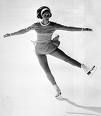
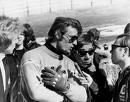


On Feb. 6-18, 1968 the X (10th) Winter Olympic Games in Grenoble, France feature 1,158 athletes (947 men, 211 women) from 37 countries competing in 35 events in 6 sports and 10 disciplines, and are the first games with an official mascot, Schuss; the first Olympics broadcast in color, and first to use Bugler's Dream by Leo Arnaud as the Olympic theme; sex tests for woman are introduced, along with doping control tests; Norway wins 14 medals (6 gold, 6 silver, 2 bronze); the East German women's luge team wins gold and silver, only to be disqualified for heating their runners; on Feb. 10 figure skater 5'4" Peggy Gail Fleming (1948-) wins the only gold medal for the U.S., helping making the Winter Olympics popular in the U.S. along with Killy and Sabich; 5'10" Jean-Claude Killy (1943-) wins three golds for France in men's alpine skiing, matching the 1956 record set by Austria's Toni Sailer; too bad, Karl Schranz of Austria claims that a mysterious man dressed in black crossed his path during the slalom race, forcing him to skid to a halt; after a restart, Schranz beats Killy's time, but a jury disqualifies him and gives the medal to Killy; 5'11" U.S. skier Vladimir Peter "Spider" Sabich (1945-76) finishes 5th in the slalom, his handsome face and body causing skiing to become more popular in the U.S., soon being cloned in the 1969 film "Downhill Racer", even though he never amounts to much professionally, and later makes headlines by getting fatally shot by his actress-singer girlfriend Claudine Georgette Longet (1942-), ex-wife (1961-75) of singer Andy Williams.




On Oct. 2, 1968 the Tlatelolco Massacre sees riot police and federal troops take on impoverished univ. students protesting an army takeover of the Nat. U. and the money lavished over the upcoming 1968 Mexico City Summer Olympics (scheduled to start in 10 days) in the inner-city neighborhood of Tlatelolco in the Plaza of the Three Cultures (Plaza de las Tres Culturas) under the orders of pres. Gustavo Diaz Ordaz, who claims the protest was instigated by leftist writer Octavio Paz (1914-98) and his writer wife Elena Garro (1916-98), causing her to flee into exile for the next 20+ years; at least 10 plainclothes snipers on rooftops of the surrounding Tlatelolco housing complex open fire with machine guns on tens of thousands of students, becoming the worst govt. massacre since the 1910 Mexican Rev.; officials initially report 29 dead, then later raise the figure to 37; a U.S. diplomat says "nearly 200" were killed, and others count as many as 700 bodies; 2K are beaten and jailed, some for over two years; police ransack the office of a magazine publishing dramatic photos of the events, and the massacre crystallizes a generation of future leaders; super-cool Italian journalist Oriana Fallaci (1929-2006) is shot 3x, dragged down stairs by her hair and left for dead by the Mexican pigs, after which she exposes the massacre despite govt. denials; years later, after taking on illegal Mexican immigrants and Muslims, she utters the soundbyte: "I don't love the Mexicans. If you hold a gun and say, 'Choose who is worse between the Muslims and the Mexicans', I have a moment of hesitation, then I choose the Muslims, because they have broken my balls."



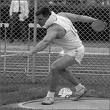


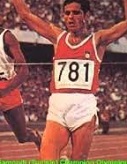


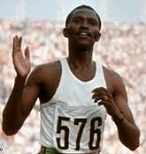
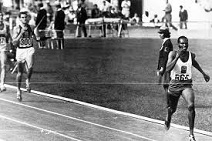


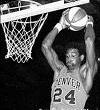
On Oct. 12-27, 1968 the XIX (19th) (1968) Summer Olympic Games in 7,349-ft. alt. Mexico City are attended by 6,082 athletes from 112 countries; Detroit, Mich. was a candidate; drug testing makes its debut, causing cheating countries to hire cleverer doctors; Montevideo-born New York City sculptor Gonzalo Fonseca (1922-97) creates a 40-ft. cast-concrete tower for the games; the U.S. wins the most medals (107) as well as the most golds (45); the Soviet Union is #2 with 91 (29 golds); eight men's and six women's world track and field records fall to the lower gravity and air resistance (except the distance runners, who conk out from lack of oxygen); black U.S. athlete Robert "Bob" Beamon (1946-) sets a world long jump record of 29 ft. 2-1/2 in., besting the 1964 record set by Ralph Boston of the U.S. (27 ft. 4-3/4 in.), and his record stands until ?; black U.S. sprinter Jim Hines (1946-) becomes the first to run the 100m in under 10 sec. (9.95); white U.S. athlete Al Oerter (1936-) wins his 4th consecutive gold medal in the men's discus throw; Naftali Temu (1945-2003) of Kenya wins the 10K after passing Degaga "Mamo" Wolde (1932-2002) of Ethiopia with only 50m to go; Wolde wns the marathon, becoming the 2nd Ethiopian after Abebe Bikili in 1964; Australian runner Ronald William "Ron" Clarke (1937-2015) (who lit the Olympic Flame in the 1956 Melbourne Olympics and won the 10K bronze in 1964) collapses during the 10K final, sustaining permanent vitral valve damage in his heart from the altitude, causing him to complain that high altitude Olympics are rigged for African nig, er, genetic and geographical backgrounds, esp. after Mohamed Gammoudi (Mohammed Tlili ben Abdallah) (1938-) raised near sea level wins a gold in the 5K, outsprinting Kenyans Naftali and Kip Keino; James Ronald "Jim" Ryun (1947-) (first high schooler to run a 4-min. mile in 1964) of the U.S. wins a silver in the 1.5K after Kipchoge "Kip" Keino (1940-) of Kenya beats him by a record 20m; William Clark "Bill" Steinkraus (1925-) becomes the first to win a gold in show jumping for the U.S. on his horse Snowbound; on Oct. 16 U.S. athletes Tommie Smith (1944-) and John Carlos (1945-) wear long black socks while competing in the 200m run, then give a black power salute, raising their black-gloved fists (Smith right, Carlos left) while bowing their heads during their medal ceremony (Smith finishes 1st and Carlos 3rd, and Smith sets a world record at 19.8 sec.); despite being praised by Howard Cosell on Oct. 20, they are suspended by the USOC upon request of the IOC; silver medalist Peter George Norman (1942-2006) of Australia supports Smith and Carlos in ther podium stand; 7'2" UCLA Bruins center Kareem Abdul-Jabbar (Ferdinand Lewis "Lew" Alcindor Jr.) (1947-) boycotts the Olympics; in 1969 after he joins the Milwaukee Bucks and makes too much use of them, scaring other teams, the slam dunk is made illegal in the NBA (until 1976); in 1969 leading scorer (16.1 points per game, .719 field goal percentage) 6'8" forward-center Spencer Haywood (1949-) of the U. of Detroit (sophomore) signs with the ABA Denver Rockets (#24) in 1969, being named rookie of the year, league MVP (youngest), and 1970 All-Star Game MVP, then with the help of owner Sam Schulman signs with the Seattle SuperSonics (#24) in 1970, becoming the first player to sign with the NBA without graduating from college, getting into a war with NBA commissioner Walter Kennedy that results in the anti-trust lawsuit Haywood v. National Basketball Association, which goes to the U.S. Supreme Court, which rules 7-2 on Mar. 1, 1971 (the Spencer Haywood Rule) that Haywood doesn't have to wait four years after graduating from college because he is a "hardship" case, needing to work to feed his family, after which he is loudly booed by Supersonics fans for years before moving to the New York Knicks (#42) in 1975-9, the New Orleans Jazz (#24) in 1979, the Los Angeles Lakers (#31) in 1979-80, Reyer Venezia in Italy in 1980-1, and the Washington Bullets (#24) in 1981-3; in the 1971 NBA Draft he officially becomes eligible is and selected #30 by the Buffalo Braves, who can't get him to leave Seattle.
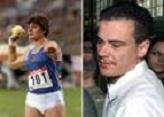
In the 1970s Communist Paradise East Germany begins pumping their female Olympic athletes with anabolic steroids with or without their knowledge in a misguided attempt to divert attention from their lousy economy and misery caused by lack of personal freedom, taking advantage of the backwardness of testing technology to avoid getting caught; too bad, the steroids ruin the women's reproductive organs and cause liver, heart, and other damage, making them into physical wrecks after their sports years; female shot putter Heidi Krieger (1966-) becomes so masculinized that she undergoes sex change therapy in 1997, changing her name to Andreas; the Stasi covers it up until the fall of the Berlin Wall, when extensive files covering 10K athletes are discovered; in 2000 former East German sports program dir. Manfred Ewald (1926-2006) and medical dir. Manfred Hoeppner are convicted of accessory to intentional bodily harm of athletes; only Hoeppner apologizes.




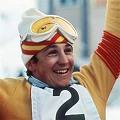
On Feb. 3-13, 1972 the XI (11th) (1972) Winter Olympic Games are held in Sapporo, Japan, becoming the first hosted outside Europe and North Am., and the first hosted by an Asian country; 1,006 athletes from 35 nations compete in 35 events in six sports; the last games where a skiier wins a gold using all-wooden skis; the Soviet Union wins the games with 16 medals, incl. 8 gold, with Switzerland coming in 2nd (10/4) and Netherlands 3rd (9/4); Japan, which never won a gold in the Winter Olympics before sweeps the ski jump event, with Yukio Kasaya (1943-) winning gold; Galina Alexeyevna Kulakova (1942-) of the Soviet Union wins all three women's cross-country skiing events; Ardianus "Ard" Schenk (1944-) of Netherlands wins three golds in speed skating; Marie-Theres Nadig (1954-) of Switzerland wins the women's downhill and giant slalom; Francisco "Paquito" Fernandez Ochoa (1950-2006) wins Spain's first gold, in slalom (until ?).

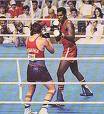








On Aug. 26-Sept. 11, 1972 XX (20th) (1972) Summer Olympics (motto "the Happy Games" to show Germany's new democratic face) are held in Munich, West Germany; their new stadium has the world's largest roof; the first summer Olympics to have a mascot, Waldi the Dachshund, designed by German font designer Otto "Otl" Aicher (1922-91), who also introduces universal sports pictograms; 7,170 athletes from 121 nations compete in 195 events in 23 sports; 20 nations accusing Rhodesia of apartheid stage a protest, causing their ouster; petite Soviet gymnast Olga Korbut (1956-) wins 3 golds and 1 silver, becoming female athlete of the year; thoroughbred-looking 6'3" 209 lb. Cuban boxer Teofilo Stevenson (1952-) wins a gold in heavyweight boxing, and threepeats in 1976 and 1980, refusing to go pro; on Sept. 4 U.S. swimmer Mark Spitz (1950-) wins a record 7th gold in the 400m relay, becoming the "King of American Swimming"; (ain't basketball America's game, not anymore, Amerikansky capitalist pigs?) on Sept. 9 the 1972 Olympic Men's Basketball Final sees the Soviet Union break the 63-game win streak (plus seven straight Olympic titles) of the U.S. Olympic basketball team that began in 1936 by defeating them 51-50 in the gold medal round in a controversial game after the game clock has almost run out with the U.S. trailing by 49-48, and Paul Douglas "Doug" Collins (1951-) of the U.S. steals a pass at half-court and is fouled, scoring two free throws to put the U.S. ahead 50-49 as the horn sounds, until (bigoted anti-Yankee, paid-off, or just doing his job?) Italian-born FIBA secy.-gen. Renato William Jones (1906-81) intervenes and restores 3 final seconds to the game clock after the Soviets claimed they called a timeout, then allows them three chances at an inbounds play, and on the 3rd, Bulgarian official Artenik Arabadjian (1930-) allegedly gestures to 6'11" U.S. center Charles Thomas "Tom" McMillen (1952-), causing him to back off from Soviet player Ivan Ivanovich Edeshko (1945-), allowing him to throw a long pass down the court to Alexander Alexandrovich Belov (1951-78), who scores an uncontested layup and wins it by 51-49, with Jones later uttering the soundbyte "The Americans have to learn how to lose, even when they think they are right"; the U.S. files a formal protest, and next Jan. 18 FIBA gives its final 3-2 decision (Italy and Puerto Rico for the U.S., Hungary, Cuba, and Poland for the Soviets), which the U.S. refuses to accept, causing the 12 silver medals to remain unclaimed until ?; Rodney "Hot Rod" Milburn Jr. (1950-97) wins a gold in the 110m hurdles, tying the world record of 13.2 sec., and sets a new record of 13.1 on July 6, 1973 in Zurich; after retiring in 1983 he ends up homeless, then dies at age 47 in a hazardous grunt job; Yale-educated Frank Charles Shorter (1947-) (who has lived and trained in mile-high Boulder, Colo. since 1970) wins a gold for the U.S. in the marathon with a time of 2:12:19.8; U. of Calif. black track coach Stan Wright (1921-98) goofs and fails to get his runners Reynaud Robinson and Eddie Hart to the stadium in time for the 100m dash; Dan Gable (1948-) of the U.S. wins gold in wrestling without giving up a point; after the Cata-Pole is barred from competition, East German Wolfgang Nordwig (1943-) beats U.S. 1968 champ Bob Seagren (1946-), becoming the 1st time an American fails to win a gold in the pole vault; Seagren later goes into acting and plays gay football player Dennis Phillips, who hooks up with Billy Crystal's character Jodie Dallas.




Why TLW hates minarets, part 6,666? On Sept. 5, 1972 (Sun.) (4:31 a.m.) just when the spirit of friendly internat. competition at the "Serene Olympics" in Munich, West Germany is going strong, eight lowdown raghead Muslim Palestinian terrorists working for the Black September terrorist org. of Venezuelan mastermind Carlos the Jackal (Ilyich Ramirez Sanchez) (1949-) (born after King Hussein II of Jordan ordered a massacre of Palestinians in Sept. 1970) crash the Olympic Village, then capture and murder 11 Jewish Israeli athletes and coaches during a 23-hour standoff (two in their 1st floor apts., the rest at the airport), becoming known as the Munich Massacre; Munich police chief Manfred Schreiber offers German-speaking leader Issa (Luttif Afif) (1937-72) (his nickname Issa is the Muslim name for Jesus, because his mother was Jewish?) unlimited money to release the hostages, and he utters the immortal Jesus-be-praised soundbyte "This is is not about money - talk of money is demeaning"; five terrorists become shahada (Muslim martyrs), and one policeman is killed during a failed hostage rescue attempt (shahada good day killing Jews, so now I'm ready for Allah to take me home?); on Sept. 6 the Olympic Games gloomily resume, ending on Sept. 11 (9-11); Pres. Nixon forms the Cabinet Committee to Combat Terrorism to protect the U.S. from terrorist attacks; Israel sends a secret unit of five ex-Mossad agents called Caesarea to hunt down all of Black September's members (and anybody else they fear?) in a 20-year "shadow war on terror", although mission cmdr. Abu Daoud (Mohammed Daoud Mohammed Odeh or Auda) (1937-) and Arafat's deputy (Black September founder and architect of the mission) Abu Iyad (Saleh Khalaf) (1933-91) are beyond reach; on June 8, 1992 they gun down PLO liaison officer Atef Bseiso (b. 1948) in the street - nobody ever forgives anybody in the religion-rich Middle East?
In 1972 voters in Denver, Colo. reject by 62%-38% a $5M bond to pay for the 1976 XII Winter Olympics, and they are awarded to Innsbruck, Austria instead.



On Feb. 4-15, 1976 the XII (12th) (1976) Winter Olympics (the games Denver, Colo. didn't want to host) in Innsbruck, Austria make a star out of U.S. figure skater Dorothy Hamill (1956-), whose distinctive wedge-cut hairdo becomes a rage; the Soviet Union wins 13 gold medals, a record for a single country; Sheila Grace Young-Ochowicz (1950-) becomes the first athlete to win three medals in a single Winter Olympics, with a gold, silver, and bronze in speed skating; Franz Klammer (1953-) of Austria wins the men's downhill with an exciting aggressive style.
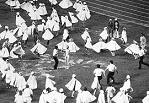






On July 17-Aug. 1, 1976 the XXI (21st) Summer Olympic Games are held in Montreal, Canada, ending up losing $1B; 22 African countries withdraw to protest a tour of South Africa by the All Blacks nat. rugby team of New Zealand; 10 Asian countries withdraw for political reasons; PM Pierre Trudeau bans athletes from the Repub. of China (Taiwan) in favor of the People's Repub. of China, which Canada is making big business deals with; 6,028 athletes from 92 nations compete in 198 events in 21 sports; Queen Elizabeth II opens the games; the Soviet Union wins 47 golds, East Germany 40, the U.S. 34; Michael Leduc (1953-) becomes the first streaker at an Olympic Games, doing it in the closing ceremony, and commenting that he wanted to show the world his beautiful body; on July 18 14-y.-o. serious, unsmiling, robot-like Nadia Comaneci (1961-) of Romania scores a perfect 10 (1st time ever), then scores six more, winning three golds in gymnastics; Edwin Corley Moses (1955-) of the U.S. wins a gold in the 400m hurdles, taking 13 steps between hurdles vs. 14 for everybody else; from 1977-87 he wins 107 consecutive finals in 122 races and sets the world record 4x; Enith Sijtje Maria Brigitha (1955-) of the Netherlands becomes the first black female Olympic swimmer, winning two Olympic medals (bronzes in 100m and 200m freestyle); despite improving his 1972 time by 1.5 min., U.S. marathoner Frank Shorter comes in #2, 50 sec. behind Waldemar Cierpinski (1950-) of East Germany, who sets an Olympic record of 2:09:55; William Bruce Jenner (1949-) of the U.S. wins gold in the decathlon with 8,618 points, which in 1985 are changed to 8,634, taking the event back from the Soviets and making him a superstar, featured on Wheaties boxes, complete with a famous hero shot; when the East German female swimmers look suspiciously masculine, U.S. swimmer Shirley Frances Babashoff (1957-) publicly accuses them of using anabolic steroids, to which an East German official replies "They came to swim, not to sing", causing her to be called "Surley Shirley" and accusing of being a sore lower, until in 1998 it is revealed that 143 members of the East German team took performance-enhancing drugs, and Frank Shorter and U.S. drug czar Gen. Barry McCaffrey work to set up the U.S. Anti-Doping Agency (USADA) in Oct. 1999, while on Nov. 10, 1999 the IOC sets up the World Anti-Doping Agency; Britain's Princess Anne is the only competitor at the Olympics not required to undergo a sex test? - too bad it doesn't apply to major league baseball?
On Jan. 4, 1980 in response to the 1979 Soviet invasion of Afghanistan, Pres. Carter announces a U.S. boycott of the Moscow Olympics and a partial (not covered by the 1975 agreement) 17M metric ton embargo of U.S. grain sales to the Soviet Union, which has its 2nd straight bad harvest, causing Argentina to take up the slack; later in Jan. Coca-Cola announces that it will substitute high-fructose corn syrup for half the sucrose because of Carter's embargo, which causes lower U.S. corn prices, helping them offset higher sugar prices which reach 24 cents per lb. by June, up 60% from 1979.

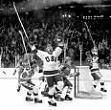

On Jan. 30, 1980 the first-ever Chinese Olympic team arrives in New York City for the Winter Games. On Feb. 13-24, 1980 the XIII (13th) Winter Olympics are held in Lake Placid, N.Y. (first time 1932); cuddly bear Misha is the mascot; 1,072 athletes from 37 nations compete in 38 events in six sports; the first use of artificial snow in an Olympics; the People's Repub. of China returns after the IOC agrees to call the other China "Chinese Taipei"; the Soviet Union wins the games with 22 medals (10 gold, 6 silver, 6 bronze); on Feb. 15 Eric Heiden (1958-) of the U.S. sets an Olympic speedskating record in the 500m, and another on Feb. 16 in the 5K, then tops it off with his 5th speedskating gold on Feb. 23 in the 10K, setting another record (a record for a single Winter Olympics in speed skating); on Feb. 22 the Miracle on Ice sees a stunning semifinal round 4-3 upset by the U.S. Olympic hockey team, Miracle on Ice sees a stunning semifinal round 4-3 upset by the U.S. Olympic hockey team, coached by Herbert Paul "Herb" Brooks (1937-2003) over the Soviets, after which they go on to win the gold on Feb. 24 by defeating Finland 4-2.
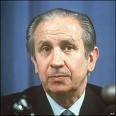
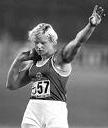


On Mar. 21, 1980 Pres. Carter announces to the U.S. Olympic Team that they will not participate in the 1980 Summer Games in Moscow as part of a boycott over Soviet intervention in Afghanistan; on Mar. 24 Australia breaks ranks and announces that it will send a delegation over objections by PM Malcolm Fraser. On July 16, 1980 Juan Antonio Samaranch (1920-2001) of Spain becomes Internat. Olympic Committee (IOC) pres. #7 (until July 16, 2001), rescuing the Olympics from near bankruptcy and turning them into hotly contested properties for competing countries; on July 19-Aug. 3 the XXII (22nd) Summer Olympic Games are held in Moscow, becoming the first held in E Europe; after the U.S. leads a boycott of 61 countries in protest of the 1979 Soviet war in Afghanistan, 5,179 athletes from 81 of 142 nations (lowest since 1956) compete in a record 203 events in 21 sports; a record 21% of the athletes are female; the first appearance of Angola, Vietnam, Botswana, Laos, Nicaragua, Seychelles, Mozambique, and Cyprus; beetle-browed Leonid Brezhnev officially opens the games, and the crew of Salyut 6, Leonid Popov and Valery Ryumin send their greetings to Central Lenin Stadium; 5M attend; there are only two protests, fewest since 1964; blonde Amazon athlete Ilona Slupianek (1956-) of East Germany wins a gold in the shot put with a record 22.41m, which isn't surpassed until ?; Anatoli Starostin (1960-) of the Soviet Union wins a gold with a record 5,568 points, which isn't surpassed until ?; Allan Wipper Wells (1952-) of Scotland beats Silvio Leonard in a photofinish to become the first British athlete to win the 100m since 1924 (10.25 sec.); Zimbabwe's all-white team wins the inaugural gold medal in women's field hockey.


On Feb. 8-19, 1984 the XIV (14th) Winter Olympic Games in Sarajevo, Yugoslavia are the first ever held in the bloody Balkans, and the first held in a Socialist country; 1,272 athletes from 49 nations compete in 49 events in six sports; Jure Franko (1962-) wins Yugoslavia's first Winter Olympics medal, a silver in the giant slalom; East German manly women win all but three of 12 medals in speedskating; disabled skiing is a demo sport; William Dean "Bill" Johnson (1960-) becomes the first U.S. athlete to win an Olympic downhill event in a dramatic upset after predicting his V Joe Namath-style, and using superior wax on the 2nd-rate Bjelasnica course; the closing ceremony is held indoors for the last time (until ?).






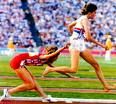




On July 28-Aug. 12, 1984 the XXIII (23rd) Summer Olympics are held in Los Angeles, Calif. after the Soviets pull out on May 7-8, and 13 other Communist nations follow suit (Romania attends); 6,797 athletes from 140 nations compete in 221 events in 23 sports; the first privately-funded games (profit $200M), featuring a new IOC trust fund set up in 1985 at the urging of Edwin Moses to subsidize athletes; the official mascot is Sam the Olympic Eagle; the opening ceremonies feature 80 grand pianos; the 9,320 mi. all-by-foot torch relay from New York City to LA involves 3,616 different runners, incl. 200 from sponsor AT&T; John Williams composes Olympic Fanfare and Theme for it; synchronized swimming, rhythmic gymnastics, and wind surfing debut; tennis (last seen in the 1924 Summer Olympics) is a demo sport, and baseball holds its 6th exhibition; the opening ceremony features Bill Suitor arriving in a Bell Aerosystems Jet Pack (Tyler Rocketbelt); the U.S. wins a lopsided share (83) of gold medals, West Germany is 2nd with 59, and Romania is 3rd with 20; Frederick Carlton "Carl" Lewis (1961-) equals Jesse Owens in 1936 by winning four golds (100m, 200m, 4x100m relay, long jump); Greg Louganis (1960-) of the U.S. wins gold in springboard and platform diving; the marathon is watched by 1M in person; Joan Benoit Samuelson (1957-) of the U.S. wins the first-ever Olympic women's marathon; Evelyn Ashford (1957-) of the U.S. wins the 100m gold with a world record 10.76 sec. (first under 11 sec.), while Gabi Andersen-Schiess of Switzerland upstages her with a stumbling last lap; Zola Budd (1966-) of South Africa (representing the U.K. to get around the apartheid problem) bumps U.S. runner Mary Decker Slaney (1958-) off the track in the 3 km for a pity party moment, allowing Marcica Puica to win; Nawal El Moutawakel (1962-) of Morocco becomes the first female medal winner from an Islamic nation (400m hurdles); Mary Lou Retton (1968-) of the U.S. becomes the first gymnast outside Eastern Europe to win the gymnastics all-round competition after only 1 of 11 women who won golds in the 1983 World Championships compete; Kiwi archer Neroli Susan Fairhall (1944-2006) becomes the first paraplegic athlete in the Olympics, placing 35th; the first privately-financed Olympics (organized by Peter Ueberroth); the debut of the Fuji Blimp; the first Summer Olympics to turn a profit since the 1932 Los Angeles Summer Olympics.




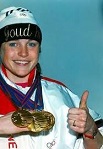
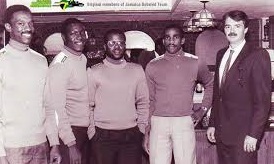


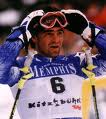
On Feb. 13-28, 1988 the XV (15th) (1988) Winter Olympics in Calgary, Canada sees 1,423 athletes from 57 nations participate in 46 events in 6 sports and 10 disciplines; on Feb. 14 hours after learning that his sister had died of leukemia, Daniel Erwin "Dan" Jansen (1967-) of the U.S. loses his bid for a gold medal at the Winter Olympics when he falls during the 500m speedskating event; on Feb. 26 the Soviet Union wins the men's hockey gold medal; on Feb. 27 after the "Battle of the Carmens", Katarina "Kati" Witt (1965-) of East Germany win the women's figure skating gold medal, with Debra Janine "Debi" Thomas (1967-) becoming the first African-Am. to win a medal at a Winter Olympics (bronze); Finnish ski jumper Matti Ensio Nykanen (Nykänen) (1963-) and Dutch speed skater Yvonne Maria Therese van Gennip (1964-) each win three golds; the Jamaica bobsled team (Devon Harris, Dudley Stokes, Michael White, Freddy Powell, and Chris Stokes) makes its debut, but fails to qualify, becoming celebs; British skier Michael "Eddie the Eagle" Edwards (1963-) becomes the first to represent Britain in ski jumping since 1928, and finishes last in the 70m and 90m events, becoming a celeb; male figure skater Brian Boitano (1963-) of the U.S. (Feb. 20) and alpine skier Alberto Tomba (1966-) of Italy also emerge as big endorsement prospects; Canada fails to win a gold medal - well, shut my mouth?





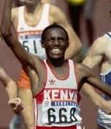

On Sept. 17-Oct. 2, 1988 the XXIV (24th) Summer Olympics are held in Seoul, South Korea; North Korea (whose request to co-host the games was refused), Cuba, Ethiopia, and Nicaragua boycott it; 8,391 athletes (incl. 2,194 women) from 160 nations compete in 263 events in 27 sports; bowling, baseball, Taekwondo, and women's judo are demonstration sports; table tennis makes its debut, with China and South Korea both winning two titles; on Sept. 18 the bowling competition sees 24 teams compete; Kwon Jong Yul of South Korea wins the gold medal; tennis returns after a 64-year absence, and Stefanie Maria "Steffi" Graf (1969-) of West Germany defeats Gabriela Sabatini (1970-) in the final; Frederick Carlton "Carl" Lewis (1961-) of the U.S. sets a long jump record of 8.72m; Vladimir Nikolaevich Artemov (1964-) of the Soviet Union wins four golds in gymnastics; Viorica Daniela Silivas (1972-) of Romania wins three golds in gymnastics after equalling Nadia Comaneci's record of seven perfect 10's in one Olympics, becoming the first Olympic gymnast to medal in every single event (until ?); two Bulgarian weightlifters are stripped of their gold medals after failing doping tests, causing the whole team to withdraw; on Sept. 20 Greg Louganis (1960-) of the U.S. wins the gold medal in springboard diving 1 day after injuring his head on the board in the preliminary round; on Sept. 24 Canadian sprinter Benjamin Sinclair "Ben" Johnson (1961-) wins the men's 100m dash with a time of 9.79 sec., but is disqualified three days later for using the anabolic steroid Stanozolol, later claiming that Andre Jackson "the Mystery Man" put it in his food or drink; on Sept. 25 Florence Griffith-Joyner ("Flo-Jo") (1959-1998) wins the women's 100m dash, and finishes with three golds and a silver; Christa Luding-Rothenburger (1959-) of East Germany becomes the first athlete to win medals at the Winter and Summer Olympics in the same year, with a silver in track cycling to go with a gold in speed skating at Calgary; Peter Kipchumba Rono (1967-) defeats favorites Peter Elliott and Steve Cram of Britain to win the 1500m, becoming the youngest Olympic gold medal winner (21 years 62 days); Roy Jones Jr. (1969-) loses the gold in boxing to Park Si-Hun (1965-) of South Korea in a 3-2 decision that raises cries of fixing, after which all three judges ruling against Jones are suspended; in the 2nd round of bantamweight boxing a Korean boxer loses to a Bulgarian, causing the Korean coaches to enter the ring and hit the referee, after which the Korean officials turn off the electricity in the amphitheater and go home; on Sept. 17-30 the 12th Olympic Basketball Tournament at the 1988 Summer Olympics in the Jamsil Gymnasium in Seoul, South Korea sees the Soviet Union men's basketball team incl. Arvydas Sabonis win gold (2nd and last time), Yugoslavia win silver, and the U.S. team incl. Mitch Richmond, Hersey Hawkins, Dan Majerle, Danny Manning, Charles Smith, and David Robinson win bronze; the U.S. women's basketball team incl. Cynthia Cooper repeats their 1984 gold performance, Yugoslavia wins silver, and the Soviet Union wins bronze.





On Feb. 8-23, 1992 the XVI (16th) Olympic Winter Games in Albertville, France become the last Winter Games to be staged in the same year as the Summer Games, and the first to be held at the same site with the Winter Paralympics (Mar. 25-Apr. 1); 1,801 athletes (incl. 488 women) from 64 nations participate in 57 events in 7 sports; freestyle mogul skiing, short-track speedskating, and women's biathlon make their debuts; Norway wins every men's cross-country skiing event; Toni Nieminen (1975-) of Finland becomes the youngest male gold medalist at a Winter Olympics, winning two golds and a bronze; U.S. speedskater Bonnie Blair (1964-) wins the 500m and 1Km; Annelise Coberger (1971-) of New Zealand wins the first Winter Olympic medal for the southern hemisphere; Kristi Yamaguchi (1971-) of the U.S. and Midori Ito (1969-) of Japan become the first Asian-descent athletes to win figure skating medals.


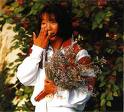


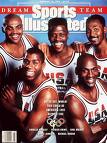

On July 25-Aug. 9, 1992 the XXV (25th) Summer Olympics are held in Barcelona, Spain, birthplace of IOC pres. (1980-2001) Juan Antonio Samaranch (1920-); first Olympics since 1972 that are not boycotted; 9,356 (6,652 men, 2,704 women) from 169 nations participate in 286 events in 32 sports; King Juan Carlos I opens the games, during which Paralympic archer Antonio Rebollo shoots an arrow into the Olympic flame cauldron; Germany sends its first unified team since the 1964 summer games; the debut of Croatia, Slovenia, Bosnia and Herzegovina (Yugoslavia is barred); South Africa competes for the first time since 1960, and South African runner Elana Meyer (1966-) (white) and Ethopian runner Derartu Tulu (1972-) (black) run against each other in the 10K race, and after Tulu wins (first Ethiopian woman to win a medal), they run a victory lap hand-in-hand; Evelyn Ashford (1957-) of the U.S. wins her 4th gold, in the 4x100m relay; 14-y.-o. Kyoko Iwasaki (1978-) wins a gold in breastroke, becoming the youngest gold medal winner in Olympic swimming; Vitaly Venediktovich Scherbo (1972-) of Belarus wins six golds in artistic gymnastics, tying Eric Heiden's record; baseball debuts, with Cuba winning the gold medal; roller hockey becomes a demonstration sport; Yael Arad (1967-) becomes the first Israeli to win a medal, a silver in judo, followed by Shay-Oren Smadja (1970-), who wins a bronze in judo; the U.S. Basketball Dream Team, coached by Detroit Pistons head coach (1983-92) Charles Jerome "Chuck" Daly (1930-2009) incl. NBA stars Michael Jordan, Magic Johnson, Larry Bird et al., and wins gold, beating eight opponents by an avg. of 44 points, causing basketball to explode in popularity worldwide, rivalling soccer; it is followed by Dream Team II at the 1994 FIBA World Championship, and Dream Team III at the 1996 Olympic Games in Atlanta, Ga.





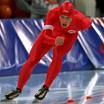


Lipstick jungle on ice? On Jan. 6, 1994 Cinderella-like Olympic figure skater Nancy Kerrigan (1969-) of Stoneham, Mass. is attacked and her knee whacked by a collapsible metal baton; the attack is later traced to the husband and three associates of her skating rival, trailer park-raised (trailer trash? who said trailer trash?) Tonya Harding (1970-) of Portland, Ore., but she plays the plausible deniability game and is allowed to compete in the XVII (17th) Winter Olympics in Lillehammer, Norway on Feb. 12-27 (mascots are the folk-character kids Haakon and Kristin), which are made into a media circus by their scrap; even though Kerrigan skates nearly perfectly just 50 days after her clubbing (winning a silver on Feb. 25), and Harding falls apart, coming in 8th and leaving a photo opp of her moping face, independent Ukraine receives its first Olympic gold medal for dark horse Orphan Annie almost-too-young figure skater Oksana Baiul (1977-); the Winter Olympics are moved to a 2-year offset from the Summer Olympics starting this year for marketing purposes; crystal-clear Norwegian opera soprano Sissel Kyrkjebo (1969-) performs during the opening and closing ceremonies; 29-y.-o. Bonnie Kathleen Blair (1964-) of the U.S. wins two gold medals for the 500m and 1000m speed-skating events, giving her five career golds, the most ever by a U.S. woman in Winter or Summer Olympics; Daniel Erwin "Dan" Jansen (1965-) of the U.S. wins a gold in the 1000m speed-skating event; Johann Olav Koss (1968-) of Norway wins three speed skating golds (1500m, 5K, 10K), and sets three world records; after Cathy Ann Turner (1962-) of Hilton, N.Y. wins the 500m short-track speed skating gold for her 2nd consecutive Olympics, silver medalist Zhang Yanmei (1972-) of China accuses her of grabbing her leg during the race, then stalks off the ceremonial stand, takes her medal off, and flings her flower bouquet to the ground; the men's ice hockey gold is won by Sweden, followed by Canada and Finland; Peter Mattias "Foppa" Forsberg (1973) helps Sweden win, winning another gold at the 2006 Winter Olympics, which combined with two Stanley Cups with the Colorado Avalanche and the 1992 and 1998 world championships makes him a member of the Triple Gold Club, and the only Swede to win each of the three competitions twice; Norway leads in total medal standings with 10 golds and 26 total, Germany is 2nd with 9 golds and 24 total, and Russia is 3rd with 11 golds and 23 total; the U.S. is 5th with 6 golds and 13 total.

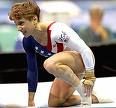
On July 19-Aug. 4, 1996 the XXVI (26th) (Centennial) Summer Olympics are held in Atlanta, Ga., with 10,320 athletes (incl. 3,523 women) from 197 nations competing in 271 events in 26 sports; the opening ceremonies feature boxer Muhammad Ali as the final athlete to bear the torch to light the Olympic flame, his hands visibly shaking from Parkinson's disease; Centennial Olympic Stadium opens, becoming Turner Field next year, home to the Atlanta Braves (until ?); the U.S. wins 101 medals (the most in a non-boycotted Olympics since 1968), Germany 65, Russia 63, China 50, Australia 41, France 37; women's soccer debuts, and the U.S. wins gold; on Aug. 1 28-y.-o. Michael Duane Johnson (1967-) of the U.S. (known for his straight-up style) becomes the first male to win the 200 and 400 meters in one Olympics as he wins the 200 three days after winning the 400; 19-y.-o. U.S. gymnast Kerri Allyson Strug (1977-) becomes the heroine of the games when she completes her final vault on a badly sprained ankle to clinch gold for her team, "the Magnificent Seven"; Peace in Our Time, by songwriter and novelist-wannabe Dan Brown is performed at the games.


On July 27, 1996 a pipe bomb packed with nails explodes in Atlanta's Centennial Olympic Park at a late night rock concert, killing one and injuring 111; CNN scoops fledgling MSNBC on the bombing footage, even though most of MSNBC's reporters are covering the Olympics; in Apr. 2005 abortion protester Eric Robert Rudolph (1966-) pleads guilty to it; 26-y.-o. security guard Richard Jewell (1962-2007) is initially hailed as a hero for spotting a suspicious backpack containing the bomb and moving people away from it, but on July 27 he is branded as a suspect by the FBI in a report in The Atlanta Journal-Constitution, which causes him to be tried by the media even though he is never arrested or charged; it takes 88 days for U.S. atty. Kent Alexander to issue a statement clearing him; in 1998 the Ga. state legislature issues a proclamation honoring him, followed by a ceremony on Aug. 1, 2006 at the state capitol; he spends the rest of his short life living under a shadow, thanks to the stinkin' FBI?


On Feb. 7-22, 1998 the XVIII Winter (18th) Olympic Games in Nagano, Japan feature 2,176 athletes from 72 nations participating in seven sports and 68 events in 15 venues, getting the lowest TV ratings in 30 years since Grenoble (X); the debut of women's ice hockey, curling, and snowboarding (invented in the 1960s); NHL players are allowed to participate in men's ice hockey; the opening ceremonies are attended by the Japanese Yamato emperor and empress; Germany wins 29 medals (2 gold), Norway 25 (10 gold), Russia 18 (9 gold), Canada 15 (6 gold), and Japan 10 medals (5 gold); the new "clap skate" (blade not attached to skater's heel) helps spur a slew of new speedskating records; on Feb. 17 the U.S. women's hockey team wins the gold in the first women's ice hockey competition in Olympic history, finishing 6-0; the Czech. Repub. wins the men's hockey gold medal, with Russia winning silver and Finland bronze; Tara Lipinski (1982-) of the U.S. upsets Michelle Kwan (1980-) of the U.S. in women's figure skating, becoming the youngest figure skater to win gold.




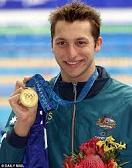

On July 14-23, 2000 the 2000 U.S. Olympics Track & Field Trials in Sacramento, Calif. are the best-attended track trials in U.S. history (until ?); drugstore athletes Marion Jones and Michael Johnson emerge as stars. On Sept. 15-Oct. 1, 2000 the XXVII (27th) Summer Olympic Games ("the Complete Olympics" - NBC-TV) are held in Sydney, Australia on the 200th anniv. of the city's namesake Thomas Townshend, 1st Viscount Sydney (1733-1800), with 10K athletes from 199 countries, plus 21K journalists; Aussie singer Olivia Newton-John sings in the opening ceremonies; the Peacock Network (NBC) airs 441.5 hours of coverage, incl. 162.5 hours of medal air time; the U.S. wins 97 medals (39 gold), the Russians 88 (32 gold), the Chinese 59 (28 gold); Australian aborigine runner Cathy Freeman (1973-) wins the 400m sprint, pleasing the crowd; Marion Jones (1975-) of the U.S. wins three golds and two bronzes; too bad, on Oct. 8, 2007 she returns them after admitting to steroid use; U.S. wrestler Rulon Gardner (1971-) upsets "Russian Bear" Alexander Karelin (1967-), who had gone undefeated in internat. competition since 1987; Australian swimmer Ian James "Thorpedo" "Thorpey" Thorpe (1982-) wins three gold and two silver medals, becoming the most successful athlete of the games; Anthony Lee "Tony" Ervin (1981-), the first African-Am. to make the U.S. swimming team wins gold in the 50m freestyle, and silver in the 4x100 freestyle relay.





On Feb. 8-24, 2002 the XIX (19th) Winter Olympic Games are held in Salt Lake City, Utah, with 2,399 athletes (1,513 men, 886 women) from 78 nations competing in 78 events in seven sports; the U.S. wins a record 34 medals, and Germany a record 35; the indoor Peaks Ice Arena in Provo, Utah is used as an ice hockey practice venue; Canada, led by half-white half-black Jarome Athur-Leigh Adekunle Tig Junior Elvis Iginla (Yoruba "big tree") (1977-) wins the men's hockey gold medal, followed by the U.S., Russia and Sweden (tie); Iginla joins the Dallas Stars in 1995, becoming capt. of the Calgary Flames, setting a team record for goals, points, and games played, scoring 50 goals in two separate seasons, and 30 goals in 11 straight seasons; on Feb. 19 Ala.-born U.S. bobsledder Vonetta Flowers (1973-) becomes the first black athlete to win a gold medal at a Winter Olympic Games; Seattle-born short-track speedskater Apolo Anton Ohno (1982-) wins gold in the 1.5Km when judges disqualify South Korean Dong-Sung Kim; America's most popular figure skater Michelle Kwan (1980-) ends up with a silver behind surprise winner Sarah Elizabeth Hughes (1985-) of the U.S. - first Tara, then Sarah?
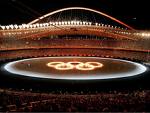

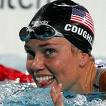



On Aug. 13-29, 2004 the XXVIII (28th) (2004) Summer Olympic Games are held in the "real place to hold it" Athens, Greece; 10,2625 athletes from 201 nations compete in 301 events in 28 sports; the U.S. team wins 102 total medals, incl. 36 gold, with China coming in #2 with 32 golds, and Russia #3 with 27 golds; official mascots are sister-brother Athina and Phevos; the first Olympics with live Internet coverage; the opening ceremony, choreographed by avant-garde dir. Dimitris Papaioannou (1964-) starts with a 28-sec. countdown paced by an amplified heartbeat, and features a topless Minoan priestess and nude men dressed as Greek statues, which is totally censored in Janet Jackson's U.S.; at first only 14K of 140K planned visitors show up in Athens, leading to empty seats until a 2nd effort fills them; 6'4" "Golden Boy" swimmer Michael Fred Phelps II (1985-) becomes the first U.S. athlete to win eight medals in one Olympiad (six gold and two bronze); Natalie Anne Coughlin (1982-) of the U.S. wins two golds, two silvers, and one bronze in swimming, becoming the first woman to swim the 100m backstroke in less than 1 min. on Aug. 13, and first woman to win gold in the 100m backstroke in two straight Olympics; on Aug. 18 Paul Elbert Hamm (1982-) (who competes alongside his twin brother Morgan) becomes the first U.S. athlete to win the men's gymnastics all-around gold medal, setting a record for the closest margin after it was discovered that a scoring error might have given the title to Yang Tae-Young (1980-) of South Korea; 16-y.-o. Carly Rae Patterson (1988-) becomes the first U.S. gymnast since Mary Lou Retton to take the women's all-around gold medal; 5'9" Misty Elizabeth "the Turtlle" May-Treanor (1977-) and 6'3" Kerri Lee Walsh (1978-) ("Six Feet of Sunshine") win a gold in beach volleyball, and do it again in 2008, earning the name of "greatest beach volleyball team of all time".









On Feb. 10-26, 2006 the XX (20th) Winter Olympics are held in Turin (Torino), Italy (first time in Italy since 1956, and first time in Europe since 1994), with 2.5K athletes from 85 countries; NBC-TV pays $613M for the telecast rights, with 418 hours of coverage, averaging 24.5 hours a day (vs. $6.4M for the 1972 Sapporo games, with 37 hours of coverage); the mascots are Neve (female snowball) and Griz (male ice cube); on Feb. 12 Shaun "the Flying Tomato" White (1986-) wins gold in the snowboard halfpipe; on Feb. 12 Michelle Kwan drops out and retires with five world and nine nat. titles but no Olympic gold, and Emily Hughes (sister of Sarah Hughes) takes her place at the last moment after being delayed by the big snowstorm in the E U.S.; U.S. downhill skiing hope Bode Miller (1977-) finishes a disappointing 5th on Feb. 12 and leaving the U.S. team, with surprise Antoine Deneriaz (Déneriaz) (1976-) of France winning gold; U.S. favorite (2002 gold medalist) short-track speedskater Apolo Anton Ohno slips in the 1.5Km semifinal on Feb. 12 and fails to qualify; on Feb. 16 Russian biathlete Olga Valeryevna Pyleva (1975-) is thrown out of the games and stripped of her silver medal after being the first athlete caught doping when a blood test detects the stimulant carphedon; on Feb. 18 Shani Davis (1982-) becomes the first black male U.S. athlete to win a Winter Olympic gold (long track ice skating), but his win only exposes hostility (racism?) by fellow white skaters, Chad Hedrick refusing to congratulate him, and expressing indignation that he trained in Canada and dropped out of the relay without notice, keeping the U.S. from a medal; on Feb. 19 Italy finally wins the cross-country skiing gold, the last time being in the first Winter Olympics in 1936; on Feb. 22 Russia ousts Canada from the hockey competition in the men's quarterfinals with a 2-0 win, while Finland ousts the U.S. men's hockey team 4-3 on the 26th anniv. of the Miracle on Ice game; on Feb. 22 Anja Paerson wins the women's slalom, a first for Sweden; on Feb. 23 Shizuka Arakawa (1981-) of Japan wins the gold in women's figure skating (a first), with Sasha Cohen (1984-) of the U.S. winning the silver, and (excuse me?) Irina Slutskaya (1979-) of Russia winning the bronze as the latter two fall in their long programs; Tugba Karademir (1985-) becomes the first figure skater from Turkey, coming in 21st; Evgeni Plushenko (1982-) of Russia wins the gold in men's figure skating; meanwhile the Shroud of Turin is used to resurrect Jesus Christ, who speaks to reporters as the Olympics begins? - (TLW, Salvation Day: the Immortality Device).



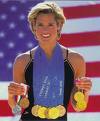





On Apr. 6, 2008 protests against the Chinese Olympics in favor of Tibetan independence rock London during the passing of the torch, followed on Apr. 7 by Paris and on Apr. 8 by San Francisco, home of longtime Tibet supporter Richard Gere; meanwhile on Apr. 5 China vows to ramp up its "patriotic education" campaign to force Tibetan Buddhist monks to denounce the Dalai Lama and declare their loyalty to Beijing. On Apr. 7-8, 2008 tens of thousands of pro-Tibet demonstrators protest the Olympic torch relay across India, causing 15K police to be mobilized and hundreds to be arrested. China says Hi, world, we're here, whatcha going to do about it? On Aug. 8, 2008 (8/8/8) at 8 p.m. (the number 8 being lucky to the Chinese) the XXIX (29th) Summer Olympic Games (slogan: "One World One Dream") open in Beijing, China after 400K Beijing residents are forcibly evicted from their homes (end Aug. 24); 11,028 athletes from 204 nations compete in 302 events in 28 sports in the new Feng Shui-approved Bird's Nest stadium and Water Cube swimming pavilion; the mascots are the Eight, er, Five Friendlies, representing China's four most popular animals (fish, panda, Tibetan antelope, swallow); the number 8 (ba) is lucky because it rhymes with fa (wealth); the number 4 (si) is unlucky since it means death in Chinese; the Chinese crowds like to yell "Jiayou!" (pr. jya-yo), meaning "add oil!", "lubricate!"; BMX (Bicycle Motocross) racing makes its debut; the U.S. wins 110 medals (36 golds), China 100 (51 golds), Russia 72 (23 golds), Britain 47 (19 golds); on Aug. 10 32-y.-o. Jason Edward Lezak (1975-) swims a record 46.06 sec. last leg of the 400m freestyle relay, running down French world record holder Alain Bernard (1983-) and breaking his world record of 47.50 by 1.5 sec. and giving the U.S. a gold with a final time of 3:08:24, shattering the world record of 3:12:23, and saving Michael Phelps' gold medal run, causing him to let out a loud victory yell which becomes the games' #1 soundbyte, being touted as the greatest relay of all time; meanwhile on Aug. 10 the Chinese basketball team led by Yao Ming loses by 101-70 to Team USA in the most watched basketball game in history, the crowd cheering wildly as he opens up the game with a 3-point shot; on Aug. 13 6'4" Jim, er, Michael Fred Phelps II (1985-), "the Baltimore Bullet" of the U.S. wins his 5th gold in swimming, giving him a record 11, followed by #6 on Aug. 15, #7 on Aug. 16, tying Mark Spitz's 1972 Munich record, and #8 on Aug. 17, setting the all-time Olympic record for most golds; on Aug. 16 Phelps defeats Am.-born swimmer Milorad Cavic (1984-) of Serbia by only 0.01 sec. in the final, giving Serbia its first Olympic swimming medal, with Cavic claiming he touched first but not with enough force to register; the Space Age Speedo LZR Racer (pr. like laser) swimsuit is used by 94% of the swimmers, bringing all their achievements, esp. Phelps' in question; on Aug. 15 Nastia Liukin (1989-) of the U.S. wins the all-round women's gold medal in gymnastics, with Shawn Johnson (1992-) of the U.S. winning the silver medal; on Aug. 17 Natalie Anne Coughlin (1982-) becomes the first U.S. female athlete to win six medals in one Olympics, and the first to win gold in 100m backstroke in two consecutive Olympics; 41-y.-o. Dara Grace Torres (1967-) becomes the first U.S swimmer to compete in five Olympics (1984-2008), and wins three silver medals; on Aug. 19 flyweight Henry Cejudo (1978-) of the U.S. (son of pesky fly-like illegal immigrants from Mexico) becomes the youngest Olympic freestyle gold winner; on Aug. 16 6'5" Usain "Lightning" Bolt (1986-) of Jamaica wins the 100M with a world record time of 9.69 sec., then on Aug. 20 wins the 200M with a world record time of 19.30 sec., shattering the supposedly unbreakable 19.32 sec. 1996 record of Michael Johnson, and becoming the first man to win both races since Carl Lewis in 1984, and the first to set world records in both in the same Olympics; on Aug. 24 (Sun.) the U.S. men's volleyball team wins gold after defeating defending champion Brazil, ending the Olympics on an upbeat, since the father-in-law of Kiwi-born coach Hugh McCutcheon (1969-) was fatally stabbed the day before competition started, and his mother injured, causing him to miss the team's first three games; the U.S. men's basketball Redeem Team (a play on the 1992 Dream Team) features Kobe Bryant, Carmelo Anthony, and LeBron James, plus coach Mike Krzyzewski, and wins gold after defeating Spain 118-109. On Aug. 9 China is rocked by an Olympic murder as a knife-wielding Chinese man attacks two relatives of a coach for the U.S. men's vollyeball team in Beijing, killing one injuring the other, then throwing himself from the 2nd story of the 13th cent. Drum Tower and committing suicide.

On Feb. 2, 2009 Olympic swimming champ Michael "Mike" Fred Phelps II (1985-) is caught smoking a bong, causing his career as a role model to take a fast dive, starting with his Kellogg's cereal endorsement to be ended (not renewed), and thousands of boxes of cereal with his picture to be donated to food banks.
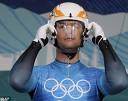


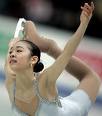
On Feb. 12-28, 2010 the XXI (21st) Winter Olympic Games are held in Vancouver, B.C. Canada; too bad, before it begins Georgian luger Nodar Kumaritashvili (b. 1988) is killed in a test run at too-fast Whistler Sliding Center, throwing a pall over the opening ceremony; the U.S. Dept. of Homeland Security announces that it is monitoring social networking Web sites incl. Twitter and Facebook to gather info. on possible terror threats; on Feb. 20 Apolo Anton Ono (1982-) wins a record 7th medal, surpassing the record of Bonnie Blair; Lee Jung-Su (1989-) of South Korea wins his 2nd straight gold in short track skating, with Ohno winning silver; Kim Yu-Na (1990-) of South Korea wins gold in figure skating; too bad, 1 in 10 athletes are injured during the Winter Olympics, and 1 in 14 fall ill.
On Feb. 17, 2012 thieves break into the Archeological Museum of Olympia in Greece, stealing 60+ artifacts from the ancient Olympic Games.
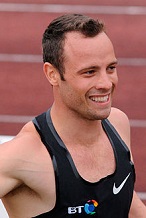
On July 27-Aug. 12, 2012 the XXX (30th) Summer Olympics are held in London, England; 10,820 athletes from 204 countries participate; the games are opened by Queen Elizabeth II; Los Angeles Philharmonic conductor (since 1992) Esa-Pekka Salonen carries the Olympic Flame; Saudi Arabia, Qatar, and Brunei enter female athletes for the first time; women's boxing makes its debut, making it the first Olympics at which every sport has female competitors; the U.S. wins 104 medals, followed by China (88), Russia (82), the U.K. (65), and Germany (44); Michael Phelps of the U.S. wins his 22nd medal, becoming the most decorated Olympic athlete ever (until ?); the World Shakespeare Festival, produced by the Royal Shakespeare Co. accompanies the games; South African sprinter Oscar Leonard Carl Pistorius (1986-) becomes the first double-leg amputee to participate in the Olympics.
On Feb. 6-23, 2014 the XXII (22nd) Winter Olympic Games in Sochi, Krasnodar, Russia sees Russia spend $51B to host it w/beefed-up security incl. a 60 mi. x 25 mi. Ring of Steel with 40K security personnel; the debut of snowboarding slopestyle, which is won by Sage Kotsenburg (first gold of the games) and Jamie Anderson of the U.S.
In Jan. 2016 a delegation from Middle Eastern countries Israel, Iran, Libya, Sudan, and Saudi Arabia arrives in Switzerland to lobby the Internat. Olympic Committee to make camel racing an Olympic sport, with Internat. Camel Racing Federation (ICRAC) chmn. Sheikh Jamaal bin Tamim Al Thani of Qatar uttering the soundbyte: "Camel racing is hugely popular across nearly 40 countries that together account for over two billion people... It's blatant discrimination that obscure, colonial sports like Badminton have a spot, and not our ancient sport."
On July 21, 2016 police in Rio de Janeiro, Brazil arrest 10 people after they openly pledge allegiance to ISIS and threaten the upcoming Olympics, and announce a search for two others, becoming the first known ISIS supporters in South Am.
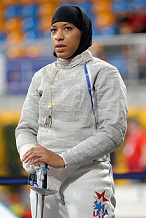




On Aug. 5-21, 2016 the 2016 (XXXI) (31st) Summer Olympics in Rio de Janeiro, Brazil (first South Am. city and Portuguese-speaking country to host them) (first in Latin Am. since 1968) (first since 2000 held in the Southern Hemisphere) (first during the host country's winter season) sees 10,500 athletes from 207 countries participate in 306 events in 28 sports; first time for Kosovo and South Sudan, rugby sevens, and golf; first with a refugee team; golf (last staged in 1904) is restored; in Nov. 2015 Russia's track & field team was provisionally suspended for its doping program, which on July 18 is found to be a "state-dictated" system, and on July 30 the IOC establishes a 3-judge panel to clear individual athletes, clearing 270 of 437; the U.S. wins the most gold medals (46), followed by Britain (27), China (26), Russia (19), Germany (17), and Japan (12); Maplewood, N.J.-born African-Am. fencer Ibtihaj Muhammad (1985-) becomes the first Am. to compete in the Olympics while wearing a hijab; Kathleen Genevieve "Katie" Ledecky (1997-) wins gold in the 400m freestyle, beating the field by 5 sec. in setting a world record time of 3:56:46; she follows with golds in the 200m freestyle and 4x200m freestyle; on Aug. 11 Simone Arianne Biles (1997-) wins a gold for individual all-around on Aug. 11; on Aug. 11 Simone Ashley Manuel (1996-) wins a silver in the women's 4x100m freestyle relay, and ties for a gold medal in the 100m freestyle with Penny Oleksiak of Canada, becoming the first African-Am. woman to win an Olympic swimming medal; the last Olympic swimming medal for a black woman was Enith Brigitha of the Netherlands in 1976 (bronze); Michael Fred "Mike" Phelps II (1985-) is chosen to be the flag bearer at the Parade of Nations, and goes on to up his gold medal total from 19 to 23, breaking the 2,168-y.-o. record of Leonidas of Rhodes with his 13th individual gold medal on Aug. 11 in the 200m individual medly; too bad, on Aug. 12 he has to settle for a silver in the 100m butterfly, sharing it with Chad le Clos and Laszlo Cseh, with the gold going to Joseph Schooling of Singapore; his visible purple cupping marks cause Arabs to claim it as Islamic in origin; on Aug. 12 Egyptian judoka Islam El Shahaby snubs Israeli judoka Or Sasson after losing a match to him, shabbily refusing to shake hands, causing the Egyptian Olympic Committee to apologize; on Aug. 12 the U.S. women's soccer team is eliminated in a penalty kickoff shootout by Sweden, becoming the first Olympics in which they don't win a gold or silver medal since 1992; on Aug. 24 after she calls the Swedish team "cowards", U.S. player Hope Soli is given a 6-mo. suspension by the IOC for violation of their PC standards; on Aug. 15 Shaunae Miller (1994-) of Bahamas takes a dive across the finishing line, beating Allyson Felix of the U.S. by 0.07 sec to win the gold medal in the 400m run; on Aug. 16 after Nikki Hamblin of New Zealand and Abbey D'Agostino both fall during a women's 500m race heat, they help each other up, later receiving a Fair Play Award; on Aug. 21 the men's marathon is won by Eliud Kipchoge of Kenya in 2:08:44; 2nd place goes to Feyisa Lilesa (1990-) of Ethiopia, who makes a sign of protest by crossing his arms over his head, causing fears that he will be killed if he returns.
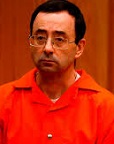
In Sept. 2016 the USA Gymnastics Sex Abuse Scandal breaks, with over 150 nat. gymnastics team members incl. Jeanette Antolin, Simone Billes, Jamie Dantzscher, Rachael Denhollander, Gabby Douglas, Maggie Nichols, Aly Raisman, and Jordyn Wieber blowing the whistle on team osteopathic physician Larry Gerard Nassar (1963-) for sexual abuse by massaging their immature sex organs under the guise of medical treatment; in Mar. 2017 USA Gymnastics pres. Steve Penny resigns; in Dec. 2016 the FBI finds 37K child porno images on his computer, pleading guilty on July 22, 2017 to federal child porno charges, after which on Dec. 7, 2017 he is sentenced to 60 years in prison; on Nov. 22 and Nov. 29, 2017 he pleads guilty to 10 charges of sexual assault; on Jan. 24, 2018 after days of witch, er, hunt-style victim impact statements, he is sentenced to 40-175 more years in prison; meanwhile USA Gymnastics and Mich. State U. are sued while avoiding criminal charges - he never actually raped anybody, hence he should have received only 1 year in jail plus probation, with the child porno sentence ditto, but women like to make themselves and children into victims and have men burned at the stake, and the PC press ate it up?
On Dec. 5, 2017 the Internat. Olympic Committee (IOC) bans Russia from the 2018 Winter Olympics in Pyeongchang, South Korea for widespread state-supported cheating by athletes using performance-enhancing drugs. On Dec. 6 Trump-hating Olympic alpine skier Lindsey Vonn utters the soundbyte to CNN: "I hope to represent the people of the United States, not the president."
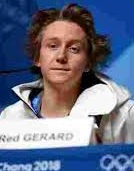
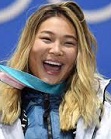
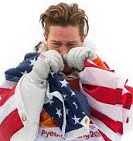
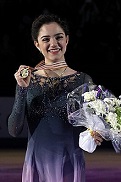

On Feb. 9-25, 2018 the 2018 (XXIII) (23rd) Winter Olympics in Pyeongchang, South Korea (first in Seoul since the 1988 Summer Games) sees 2,952 athletes from 92 nations participate in 102 events in 7 sports and 15 disciplines, broadcast by NBC-TV; China moved 300K troops closer to the North Korean border prior to the start of the games; on Feb. 9 the opening ceremony sees NBC-TV analyst Joshua Cooper Ramo (1968-) praise the presence of Japanese PM Shinzo Abe, with the soundbyte: "Every Korean will tell you that Japan is a cultural, technological, and economic example that has been so important to their own transformation", pissing-off Korea, causing him to be benched; Norway wins 39 medals incl. 14 gold, Germany wins 31 (14 gold), Canada wins 29 (11 gold), the U.S. wins 23 (9 gold), Netherland wins 20 (8 gold), Sweden wins 14 (7 gold), and South Korea wins 17 (5 gold); on Feb. 11 the first U.S. gold medal is won in Men's Slopestyle Snowboarding by Redmond "Red" Gerard (2000-) of Silverthorne, Colo., causing the town to rename itself Goldthorne; on Feb. 12 Chloe Kim (2000-) of the U.S. wins gold in women's halfpipe with a score of 98.25; Shaun Roger "Flying Tomato" White (1986-) of the U.S. wins his 3rd gold (100th Winter Olympic gold for the U.S.) in men's halfpipe in a dramatic performance, with a score of 97.75 (first threepeat in the same event in the Olympics), becoming the Crying Tomato; on Feb. 23 18-y.-o. super-emotional Tatar descent Russian figure skater favorite Evgenia (Yevegenia) Armanovna Medvedeva (1999-) is edged out 239.57 to 238.26 by 15-y.-o. super-cool Armenian descent Russian figure skater Alina Ilnazovna Zagitova (2002-); the U.S. wins its first-ever gold in curling, and women's cross-country; the U.S. women's hockey team wins its first gold since Nagano in 1998, becoming the 4th of 5th Winter Olympics facing Canada for the gold in "the world's fiercest Winter Olympics rivalry".